



























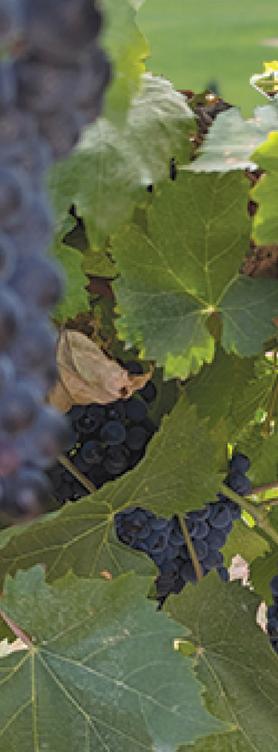



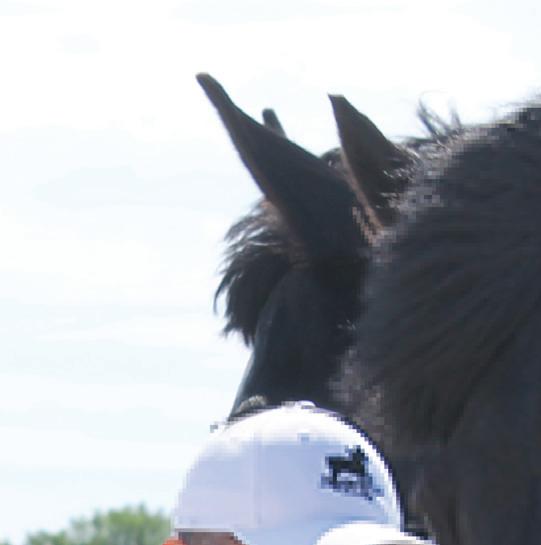



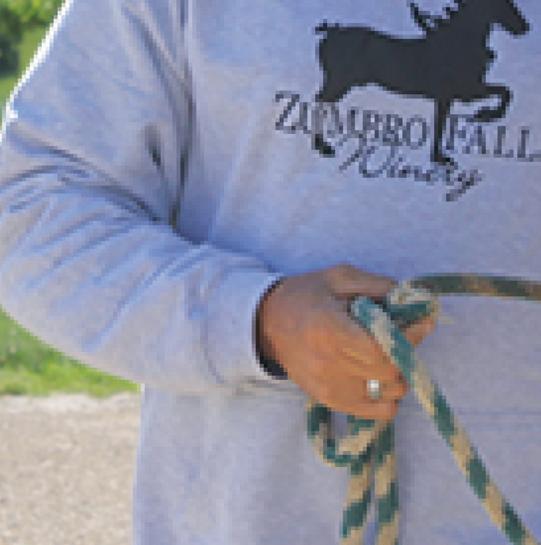
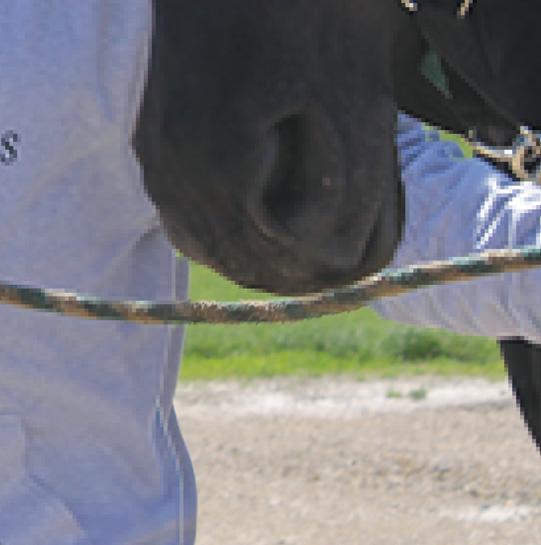


 BY SARAH COLBURN | STAFF WRITER
BY SARAH COLBURN | STAFF WRITER
ZUMBRO FALLS – Kevin Kautz spent years raising beef cattle on 80 acres in Zumbro Falls. Then, after playing just nine rounds of golf, he transformed his farmland into a golf course and, this year opened an on-farm winery.
“I’ve always had a love for agriculture, and horticulture with the golf course, and viticulture was a natural addition,” Kautz said.
The land is now home to more than 2,200 grapevines with more coming every year, and he’s opened the winery to the public.
A white wedding carriage traverses through the gently sloping hills, giving visitors a glimpse of the care and work that goes into growing the grapes there.
The carriage is pulled by two Percheron horses named King and Jack, animals Kautz fell in love with and that serve as the winery’s mascots.
The vineyard itself has been years in the making and, today, Zumbro Falls Winery carries 12 different varieties of wine. One, a Frontenac Blanc, carries the name Sweet Laura Lynn and was crafted in honor of Kautz’s wife, who died unexpectedly in December of 2021, at the age of 55.
With a smile that spreads from his mouth to his eyes, Kautz tells the story of how the first set of grapes came to be. He bought them after joking with Laura that she liked wine so much maybe he should plant some.
And then, they did.
Together, side-by-side, in 2016, the
couple hand-planted the first 200 Marquette vines and Kautz joined the Minnesota Grape Growers Association. Two years later, they planted another 900 and, in 2019, 900 more. They toured 50 or 60 wineries throughout Minnesota, Iowa and Wisconsin and sold grapes to other winemakers. Soon after, they talked of plans to remodel their existing golf clubhouse to make it appropriate for tastings.

“She loved wine … I was starting to get full of carbonated beer and took a love for the wine,” he said.
While he began researching the best steps forward, Laura often showed people around the property.
“My wife loved to take pictures and put the dog in the golf cart,” he said. “She was always giving tours to friends in the golf cart.”
Laura died of a heart attack before construction began. That day, she was readying to pick up Kautz and their son, Kaleb, from the airport; the two had taken a trip to Arizona to see Kautz’s parents and play golf. They talked to Laura daily and again just 15 minutes before they boarded the flight. She died before the plane landed back in Minnesota.










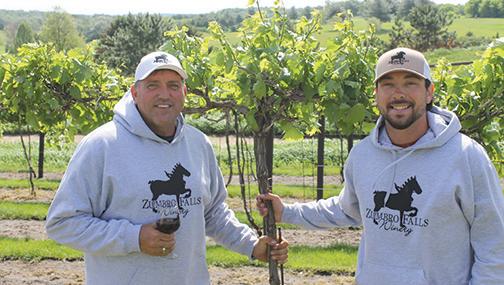
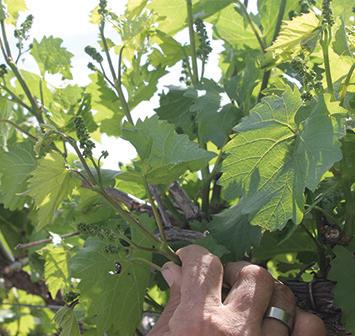










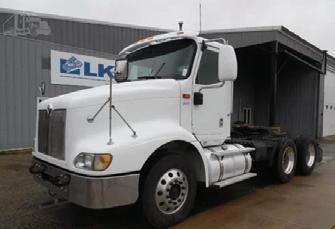

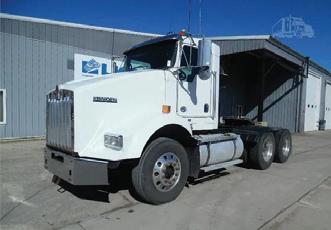




“We try to fulfill a wine menu for all generations,” Kautz said.
Kautz offers four fruit wines. To diversify the winery’s options, he brought in fruit bases from Michigan — peaches, raspberries, blackberries and cranberries.
“Fruit wine is increasingly popular with young people,” he said.
Kautz fermented those last summer.
“That was probably the most fun experience of all the wine-making,” he said. “When those four flavors started fermenting, it smelled like the back room of a flower shop.”
In the future, Kautz said he plans to ferment them individually so he can appreciate each one as they develop.
“That’s been the most joyful process,” he said. “They’re sweet wines and the Midwest generally has sweet wine drinkers.”
For his other wines, he works with grapes from his own vineyard. It takes five years for the vines to produce a full crop and he added 150 more vines this year.
“We prune everything in the spring, prune back to the spurs,” he said. “Then we hedge all summer long and train, or tie the grapes up.”
He uses a high wire cordon training system to grow the grapes at a height of 55-60 inches, making them easier for harvesting.
“After lots of tours

Zumbro Falls Winery provides event space for weddings as well as other private parties. The winery has a ninepassenger horse-drawn carriage on site for rides and tours.
and education, I decided to go with all high wire and it’s been a great blessing,” Kautz said.
The system, he said, allows for healthier vines.
“They’re higher yielding because they get more sunlight, less disease and more airflow,” he said. “Our grapes run east to west so they get great sun. Grapes hate wet feet … our goal when we picked varieties was hybrids that have proven themselves to be winter hardy and high yielding.”
Last fall, for the first time, he picked grapes with a combine harvester. Previously, he had 70-some volunteers two Saturdays in a row picking and didn’t get half the crop picked.
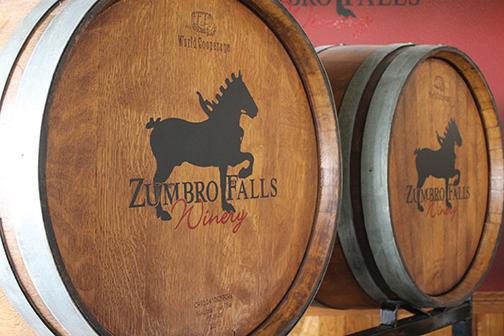
Kautz, who still talks of the winery as a joint effort with his wife, looks off over the golf course, pond, covered deck and patio with tears in his eyes and said: “A lot of this stuff, decisions, were made after Laura was gone.”
Today, Kautz and his son, Kaleb, are the ones working side-by-side.
Kaleb is in charge of mowing the accompanying golf course and running the golf leagues at Zumbro Falls Golf Club while his dad focuses on the greens and the wine. They offer weekend wine bingo, live acoustic music as well as food specials like prime rib and salmon, or brunch at their on-site restaurant. They also host special events, including showers and weddings.
They had their first official wine toast to Laura on Feb. 17, and Kautz said another person could not have fit inside the room.
As he welcomes the public to the winery, he said, he wants them to be able to enjoy the space.
“It’s a place for people to gather and decompress over a glass of wine,” Kautz said. “People need to find a way to decompress with the busy world we live in.”
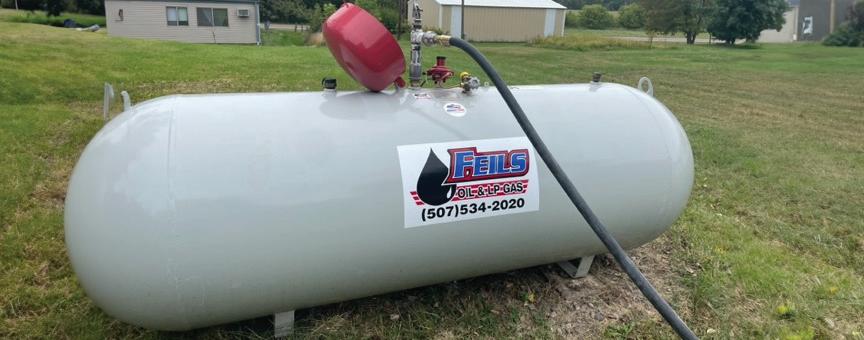


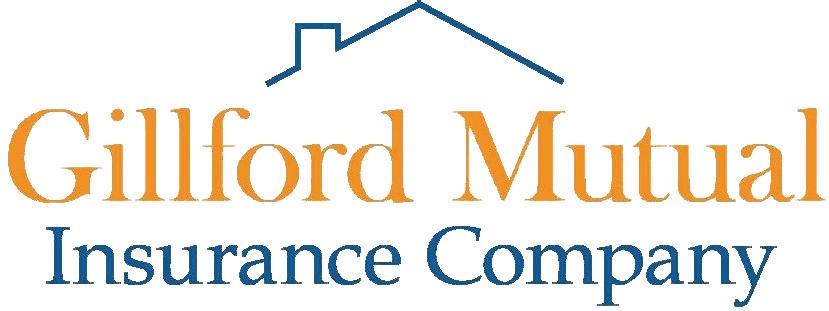








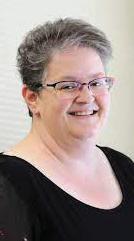



























































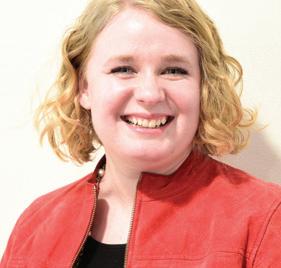



































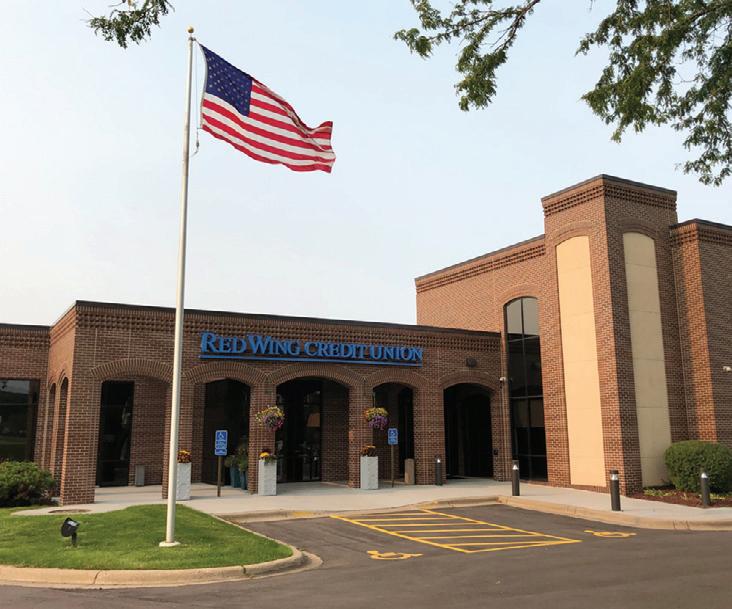







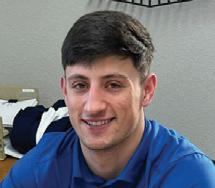
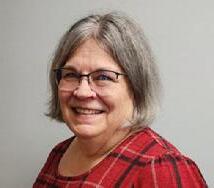

























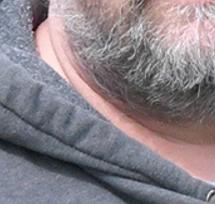


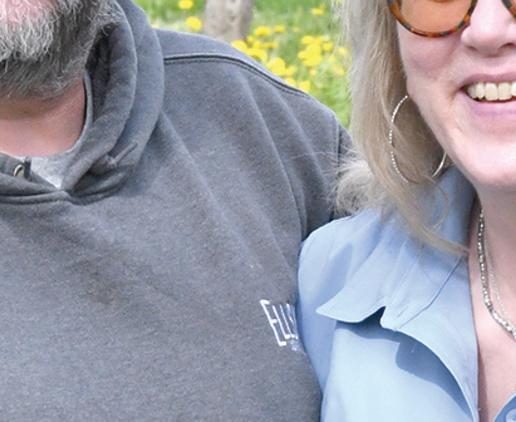


















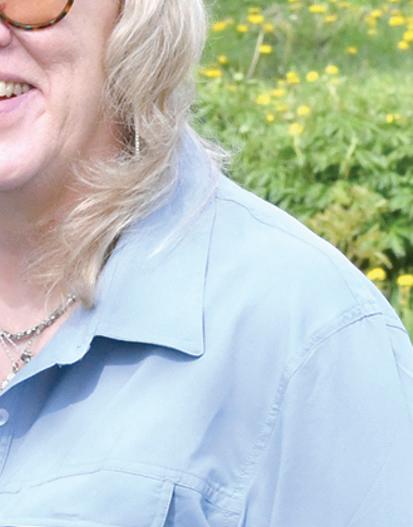

KENYON — A June weekend at Aspelund Peony Gardens finds guests breathing flower-scented air as they walk among an acre filled with 2,000 peony plants.
“A lot of people just come to see the flowers,” said Dawn Rohl. “We’re glad people can enjoy them.”
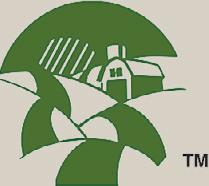
Bruce and Dawn Rohl are the owners of Aspelund Peony Gardens, located near Kenyon. Each year, for three weekends in June, they welcome about 1,000 guests onto their farm. Guests can choose a peony variety to buy when the plants are split in the fall, or simply enjoy the floral scene.

“Flowers are always a common denominator in this crazy world,” Dawn said. “The beauty and the smell and everything is there.”


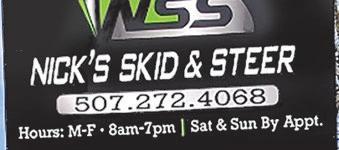

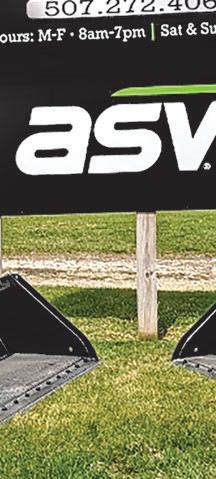



The Rohls have about 140 different varieties of peonies. Each year, they choose which varieties to sell. Inventory is limited, and the Rohls only sell about 10 plants from each variety they choose for the year.
“I like meeting the people,” Dawn said. “It’s fun helping people pick out (plants) for their gardens and helping them to decide.”



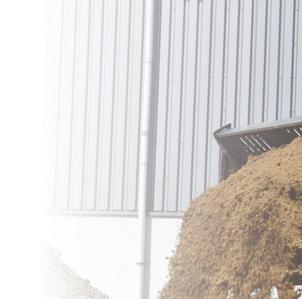


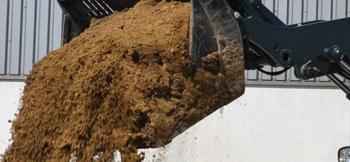
















The Rohls have mostly Japanese, single and semi-double flower peony varieties. These flower styles will not tip over like some of the other varieties. Bomb style peonies can tip over after a rain because the flower heads hold enough water that they can become too heavy for the stems.
Dawn has guests look beyond the flower when choosing a peony plant.
“I tell people, ‘Look at the bushes, they’re all different,’” Dawn said. “‘You’re going to see that six months of the year. The flower is a bonus.’”
Peony plants must be divided in order to propagate the same plant. Seeds do not maintain the variety and attempts to root a slip will not work. After splitting, it takes a peony plant about three years to recover.
Customers order peonies from spring until mid-August. In the fall, Bruce divides the peony roots and sends them out.
With Minnesota’s harsh winters, Bruce makes sure to check each individual plant’s cold hardiness before he sells them. He said even if a variety is hardy, an individual plant may not be, so he waits to divide and sell until he knows the particular plant itself is hardy.
“The only reason I want a person to come back is because they want more peonies, not to replace what they already got from us,” Bruce said.
Bruce and Dawn began collecting peonies in 1996. Their first 13 peonies came from a place in Faribault that had flowers that did not tip over.
“The only reason Bruce would have them is because they stood up,”
Dawn said.
Bruce agreed.
“I wasn’t going to work with anything (that tipped over) ... in the yard,” Bruce said.
In 2007, the Rohls decided it was time to begin sharing their peonies. Since then, they have maintained the number of peonies sold. Their business is promoted by word of mouth.
Some people come to just look at the flowers or take photos among them. The Rohls welcome photo taking, although they prefer that professional photographers ask in advance so they can set up an after-hours time when they are not disturbing the Rohls’ guests.
Dawn said one of the things she enjoys is how she gets to watch changes in the lives of the people she sees yearly. Aspelund Peony Gardens has even been the site of a proposal.

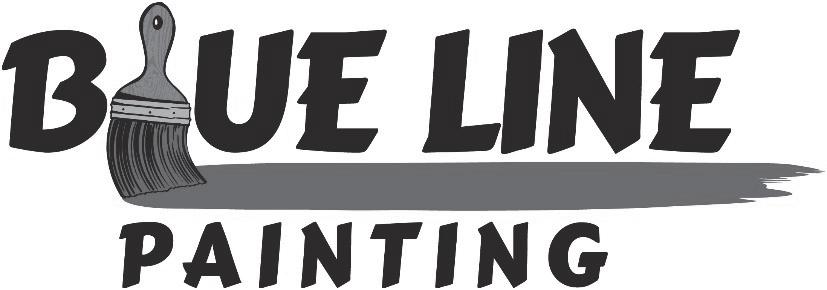






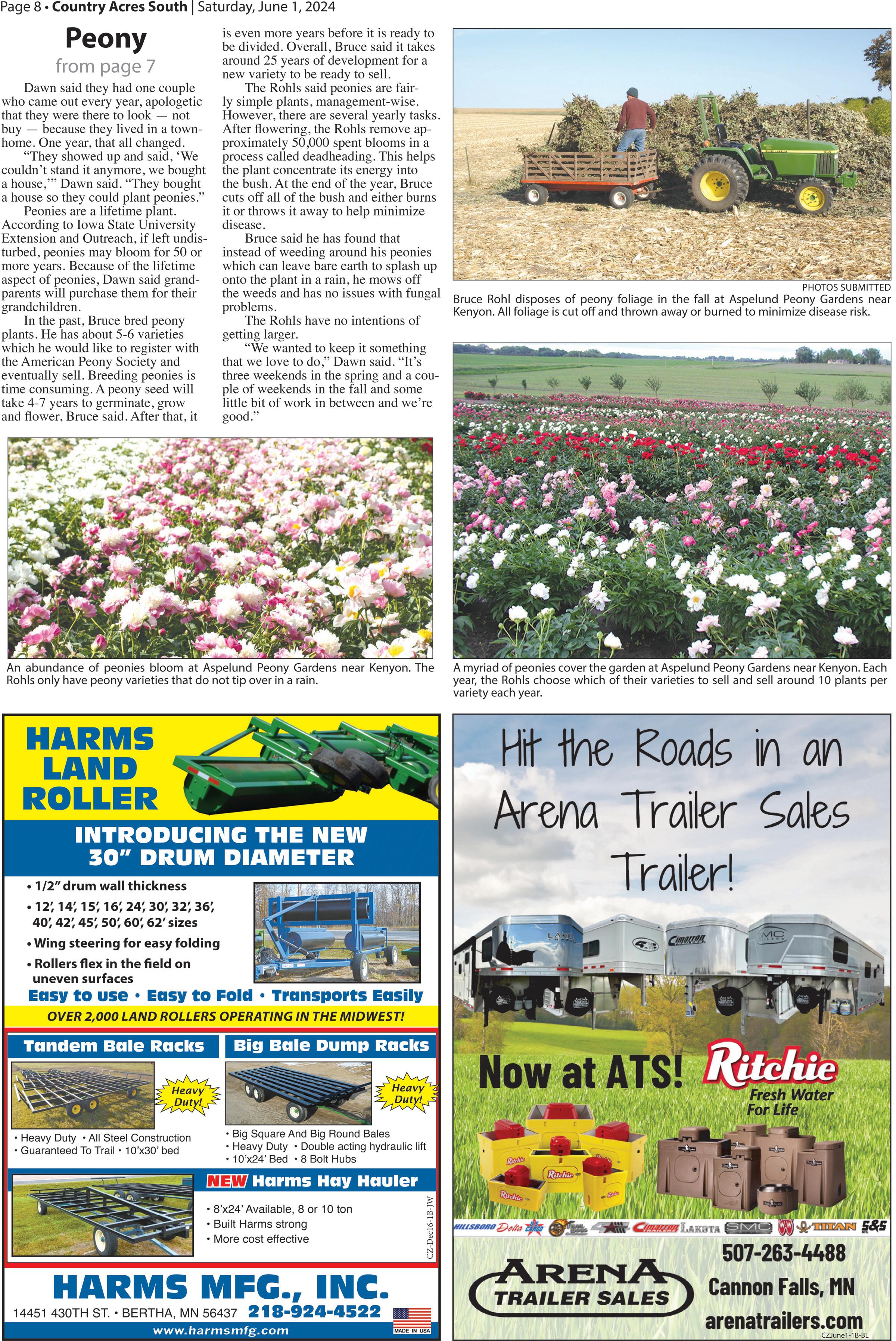





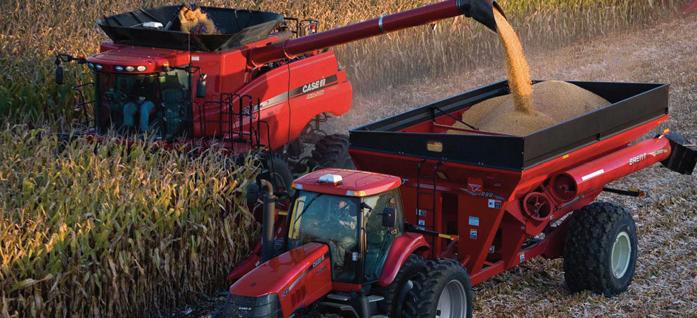



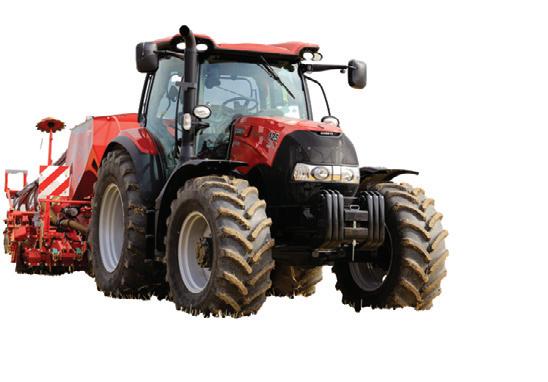


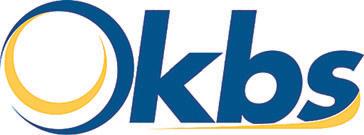











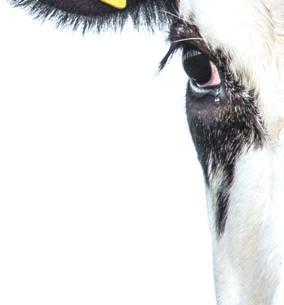

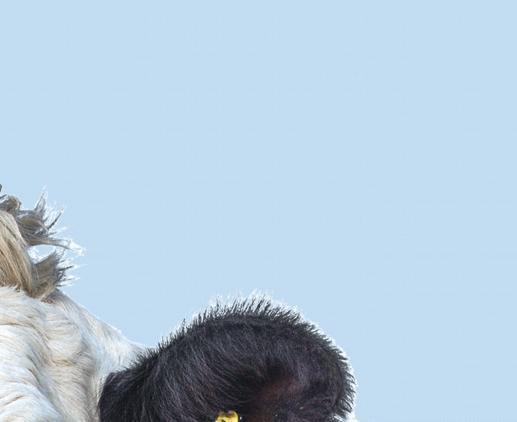






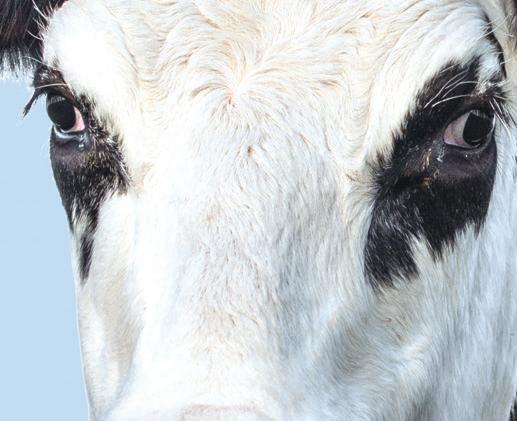






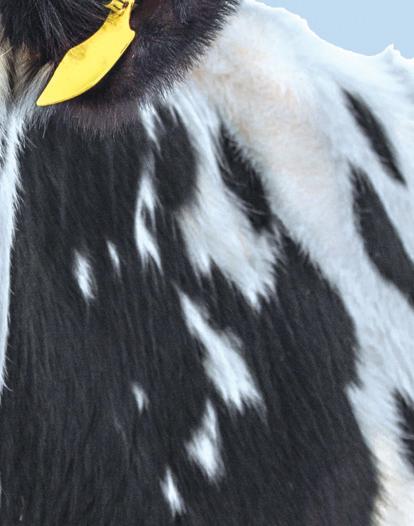
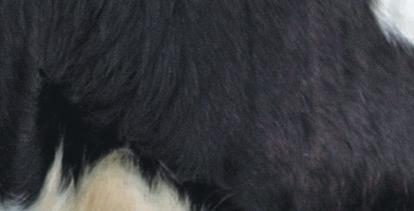
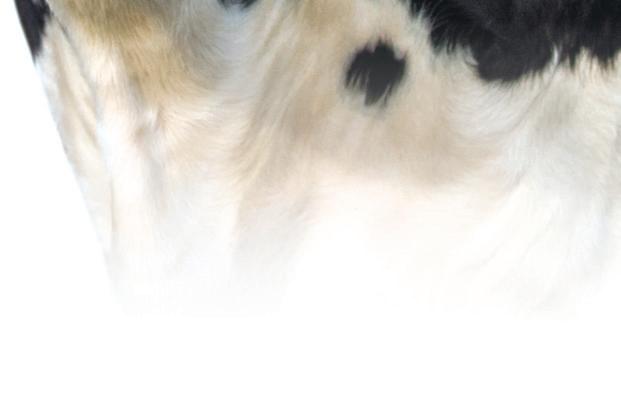




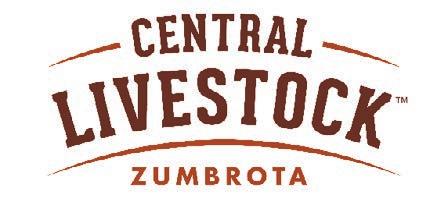


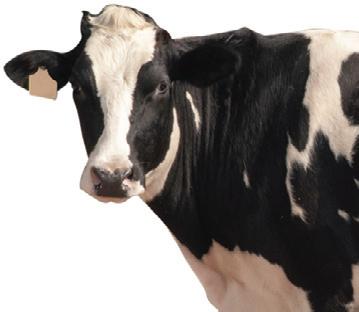
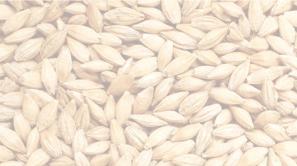
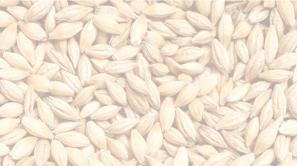
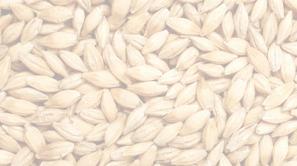


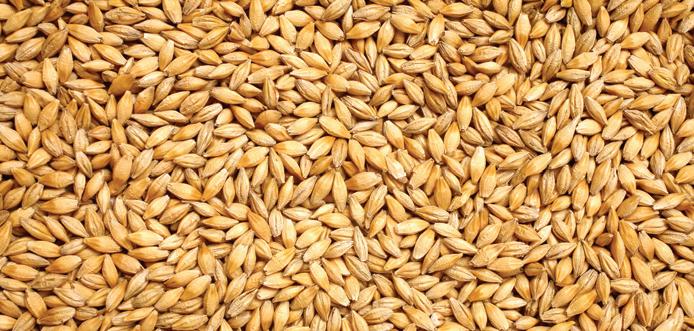





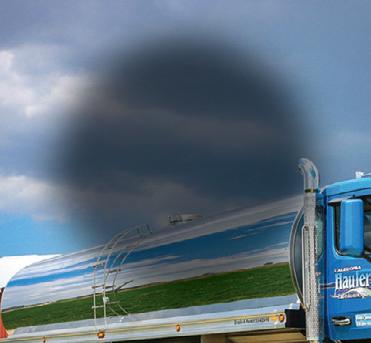
 BY AMY KYLLO STAFF WRITER
BY AMY KYLLO STAFF WRITER
UTICA — For Katie Ketchum, bad dad joke competitions are something she and her sister, Kyli, compete in as they milk cows together in the parlor.















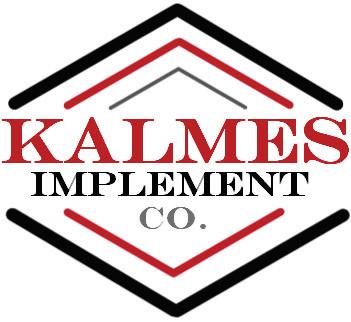

“I’m not very good at them,” Ketchum said. “Dad jokes aren’t great in general, but I’m actually not good at them.”
Ketchum is the daughter of Mike and Mary. She grew up helping on a 500-acre dairy farm where her parents and grandparents, Bob and Terri, milk about 120 registered Holsteins and two Jerseys near Utica.




Ketchum was named a top 10 finalist for Princess Kay of the Milky Way. She and her family heard the announcement gathered around their hay baler as it was being fixed.
“It was really exciting,” Ketchum said. “It was something that I definitely wanted for a long time.”
Sharing stories about her family farm as a dairy princess is a priority for Ketchum.

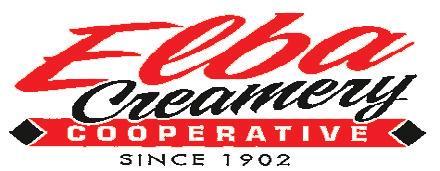
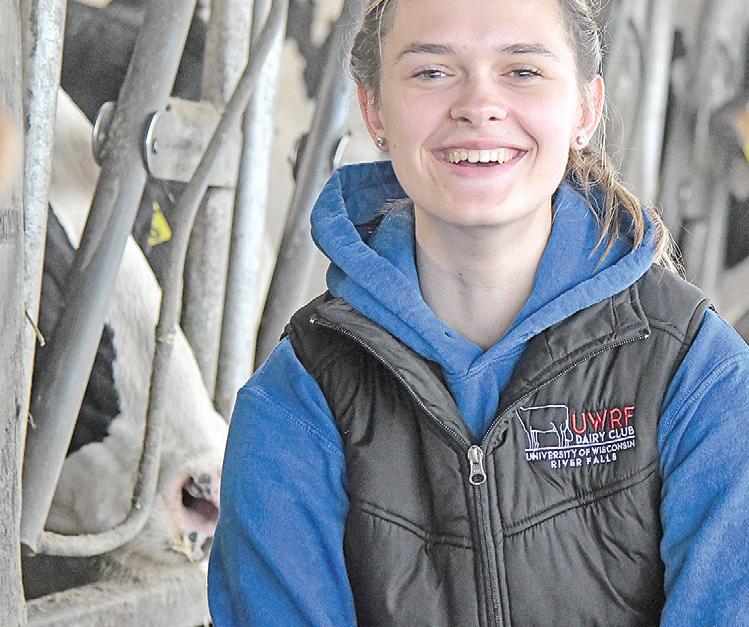




“It’s not really a job in a sense; it’s more of a livelihood,” Ketchum said. “This is what my family does because we’re passionate about it.”

with the farm experiences she had.
Ketchum said her parents never forced her interest in the farm.
“(I would say) ‘Hey Mom, hey Dad, is it chore time yet? I want to go hang out in the parlor,” Ketchum said. “This is our family time some days. Farming can be very busy.”
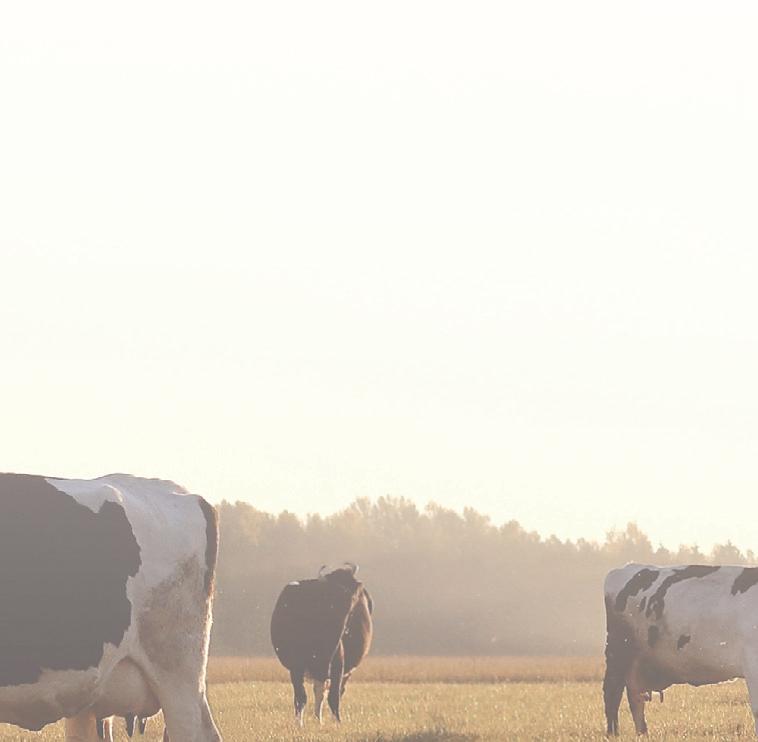

She said she enjoys watching her parents and grandparents try new things on the farm, asking them questions and learning. Ketchum said she has realized many people do not have the opportunity to grow up

“Why I love (the dairy community) is I get to share what my family does and why we get excited about it,” Ketchum said. “I love being able to see ... when a calf is born and then watching them ... in two years have their own calf and just seeing the cycle repeat.”
Ketchum helps on the farm where she is needed. Recently, she has been feeding calves. Other chores she helps with include milking, cleaning the freestall barn and raking hay which, she said, is a favorite summer chore. In the winter, her chores are cow focused.

“I like just being able to be with the cows,” Ketchum said.
“I don’t really care what we’re doing.”
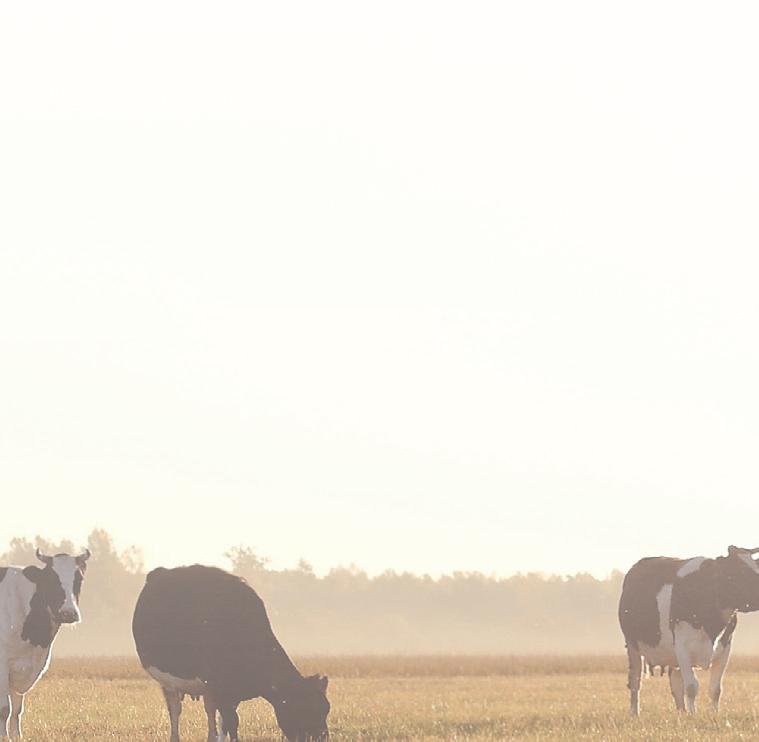
Outside the farm, Ketchum is active with FFA, serving as the state president, a position she completed in April. She put 26,000 miles on her car attending events across the state of Minnesota.




started seeing that happen on my home farm. It was just something that (answered) ‘What can I do to bring awareness to the dairy community?’”
Ketchum is attending the University of Wisconsin-River Falls for agriculture education. She said the Princess Kay classroom visits have been her favorite part of watching the program.
In the future, Ketchum plans to work as an agriculture teacher and an FFA adviser, volunteer on her local American Dairy Association board and continue to grow her herd at her parents’ farm. Ketchum currently owns or co-owns eight Holstein and Jersey cattle.

In 2020 in her local community, Ketchum started a now-annual FFA event called the dairy bag sale. Community members can buy a bag of dairy products for $25 with the proceeds benefitting FFA or FFA alumni.
“(That year) the milk prices were very low and I was watching some farms in our community really struggle,” Ketchum said.
“That really hit home for me because I
Ketchum said she hopes to use the butter sculpture she will receive at her county’s Family Night on the Farm.
“It’s always been one of my favorite events that we used to do as dairy ambassadors,” Ketchum said. “It’s unique to my county, but also, it’s something that has always been really fun for me.”
She said the butter may also be used for her family’s cookie day around Christmas.
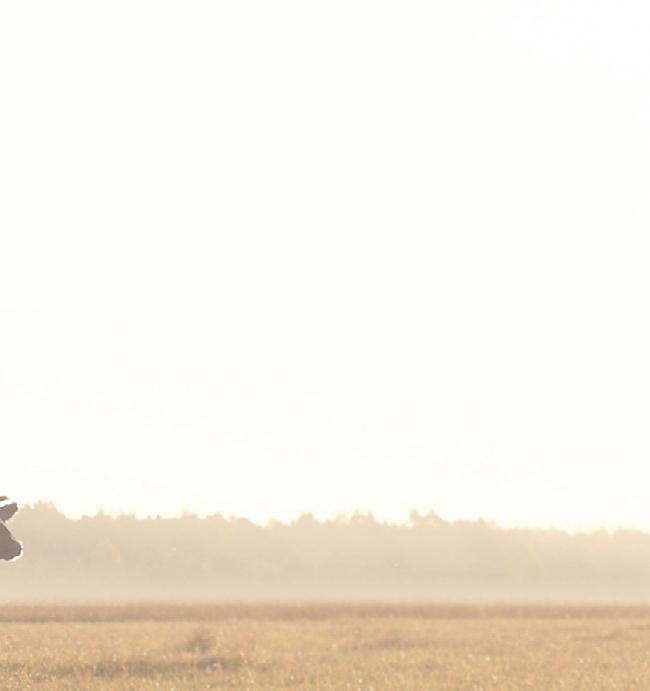

The same personality trait that makes Miranda Schroeder enjoy accounting also makes her enjoy the dairy community.
“I like to work with numbers and I like knowing when everything balances and the step by step,” Schroeder said. “Being able to know the step by step from farm to table ... (and) getting that (information) out there is probably why I have a passion for the dairy community.”

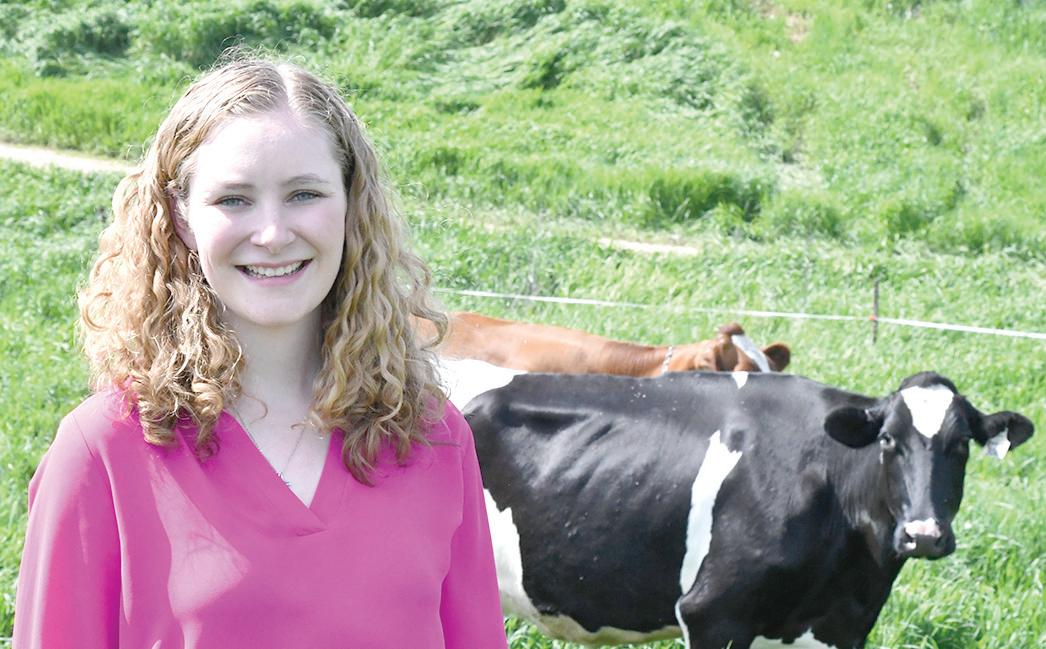


Schroeder, who is the daughter of Daniel and Sheila, was named one of the top 10 finalists for Princess Kay of the Milky Way.
“A message that I am most adamant about is just saying that dairy is real,” Schroeder said. “It has 13 essential nutrients that help strengthen your bones, your mind and your body. It’s all natural ... there’s nothing to hide.”




Schroeder’s dad, uncle Michael, sister Rebeckah (Schroeder) Marschall, and cousin, Carson Bullerman, all work full time on the farm.
Finalists were announced via a video which premiered on Princess Kay’s Facebook page on May 12. Schroeder viewed it at a watch party with her family at their house. Schroeder said the fact she is a finalist has not fully sunk in yet.
“I was so excited, I was so happy, (so) overjoyed for becoming a finalist,” Schroeder said.


Schroeder’s family operates a fifth-generation dairy farm near Caledonia. The Schroeders milk 140 cows and farm 1,500 acres.
Schroeder helps on the weekends or as needed, as she is able, around college and other responsibilities. She said her favorite job is bottle-feeding calves.
“I look up to both my dad and my sister and just seeing how hard they work and how much work goes into the food that we make,” Schroeder said. “It makes me very proud to see that not only are they working for the farm and their family but also for the entire community.”
Schroeder said some of her favorite memories on the farm are milking cows with her sister.
“It’s our time to just talk about our days and just get to catch up with each other,” Schroeder said. “Sometimes life can be really busy and you run, run, run.”
Another favorite farm memory was when her dad would wake her and her siblings up early to go see a calf being born.
“We’d go over, and just being able to watch life be born is the most amazing thing ever,” Schroeder said.
Schroeder, who just



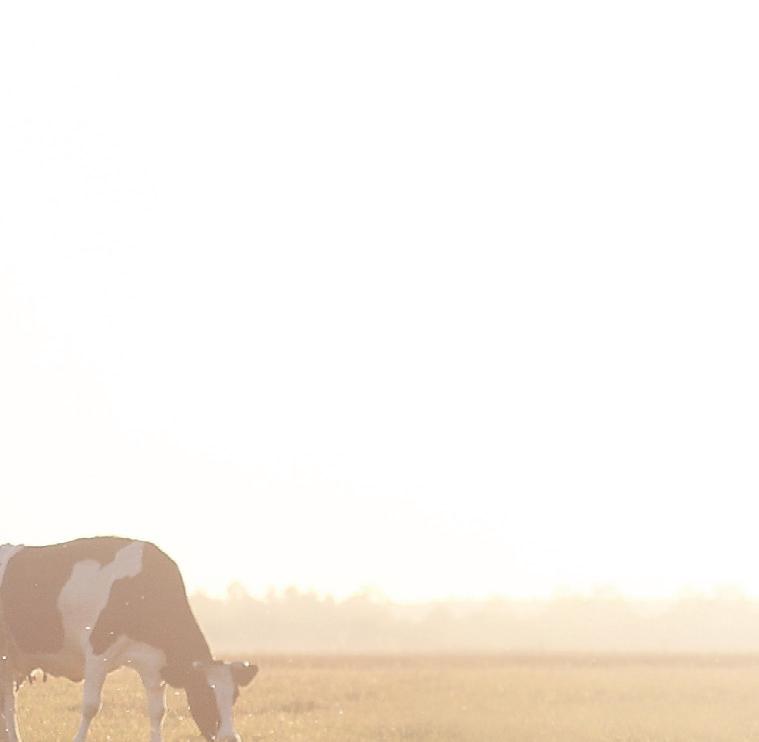
Miranda Schroeder smiles May 16 at her family’s dairy farm near Caledonia. Schroeder was named a top 10 finalist for Princess Kay of the Milky Way
milking units for evening milking May 16 at the Schroeders’ dairy farm near Caledonia. Milking cows with her sister is one of Miranda’s favorite memories from the dairy barn.
finished her first year of college at Minnesota State College Southeast-Winona Campus, is pursuing a degree in accounting. She plans to return to the greater-Caledonia area and work for an agriculture-based company while potentially assisting with the financials for her family’s dairy farm and occasionally helping with chores.
spark my joy for the dairy community,” Schroeder said. “She’s always proud of everything I do ... she’s probably the best role model.”


Schroeder said her favorite Houston County dairy princess event was a dairy day camp in May. The event, which was hosted on a Houston County dairy farm, invited fifth graders from across the county to go on a farm tour where they could milk a cow, bottle-feed a calf and see a total mixed ration (TMR) demonstration. They could also participate in games and go through a dairy-themed escape trailer.
Schroeder has plans for her 90-pound butter likeness. She will display it next year at her county’s dairy princess banquet. Schroeder and Marschall plan to do a photoshoot with their butter sculptures together. Then, Schroeder said she will enjoy the butter with family and friends during movie nights and in baking.

“All the fifth graders left so happy ... I’m hoping next year we do it again,” Schroeder said. “It was a whirlwind of fun.”
Schroeder is the second woman in her family to be a Princess Kay finalist. Her older sister, Marschall, was a finalist in 2020.
“She really helped

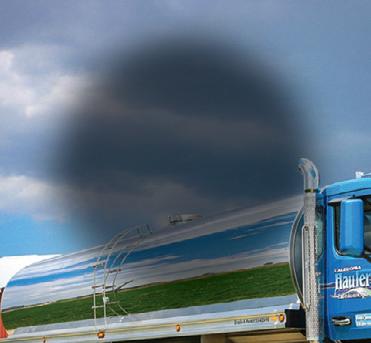

















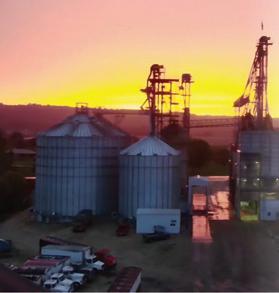





























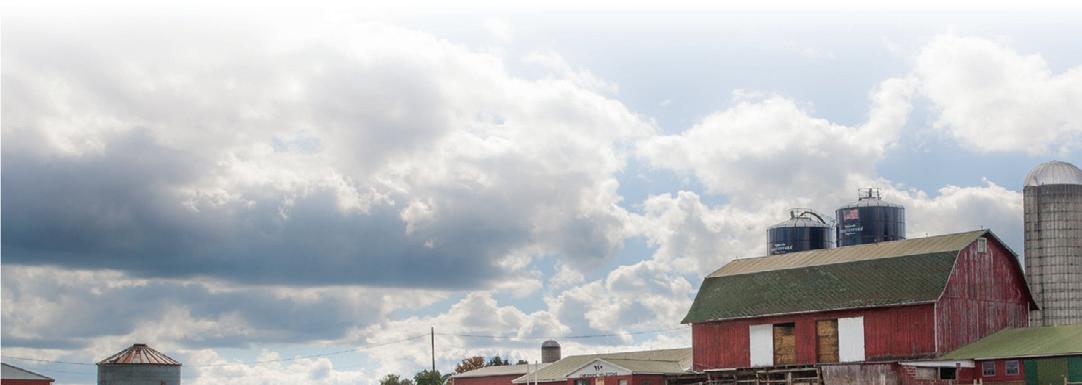


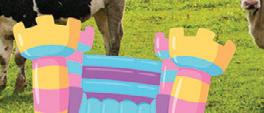

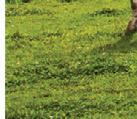

























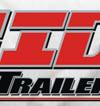




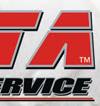














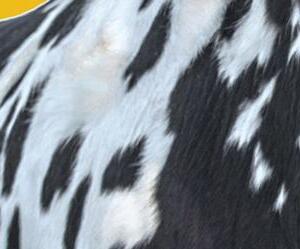
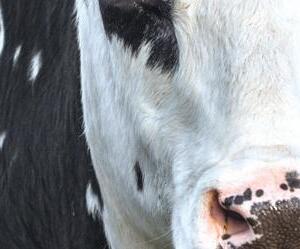
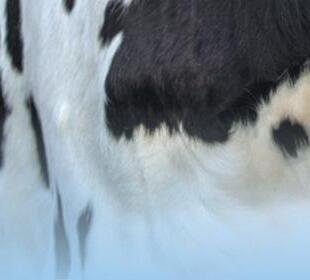










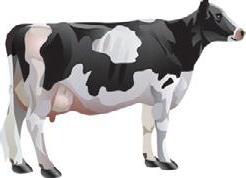





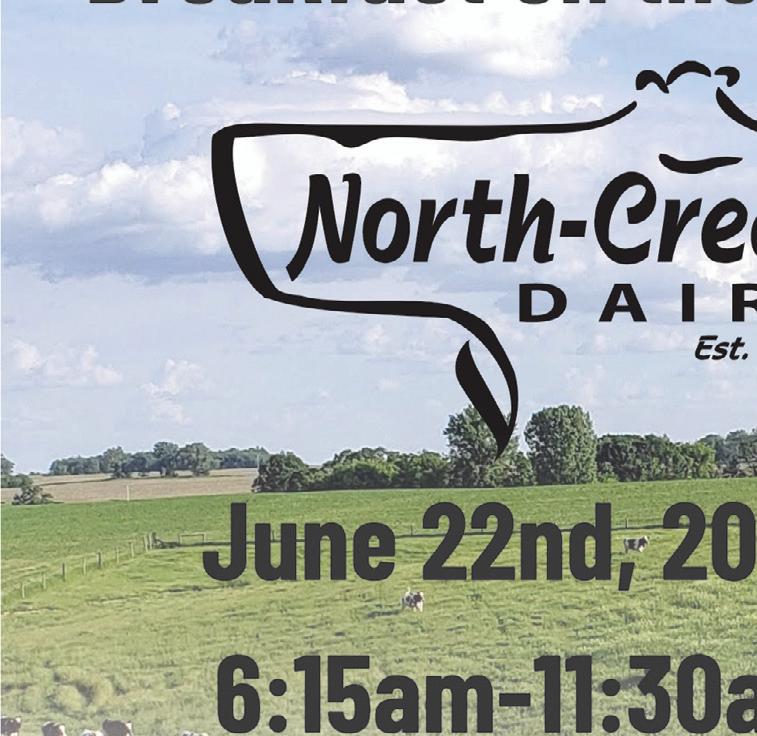
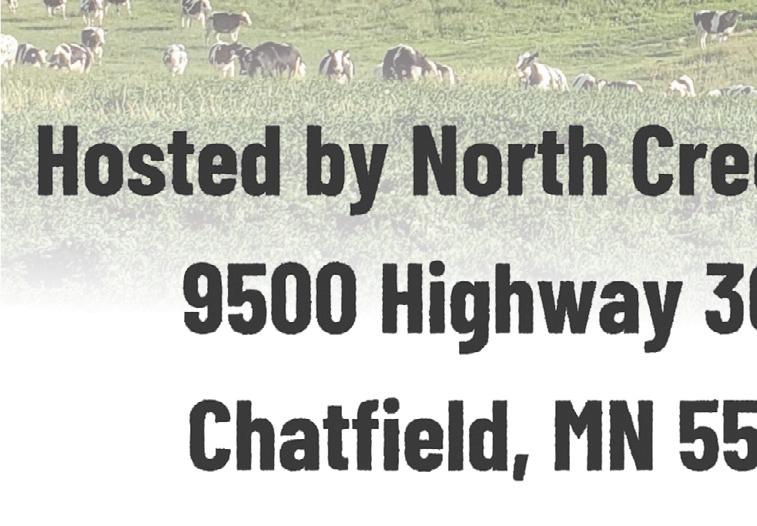


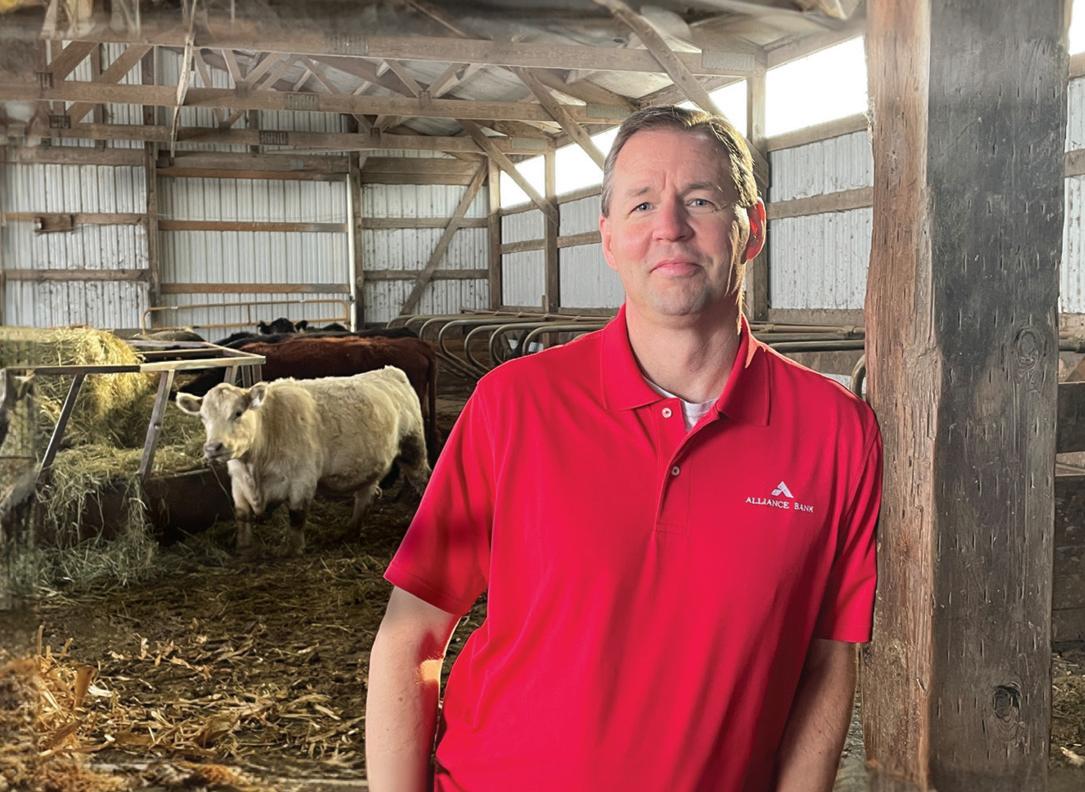

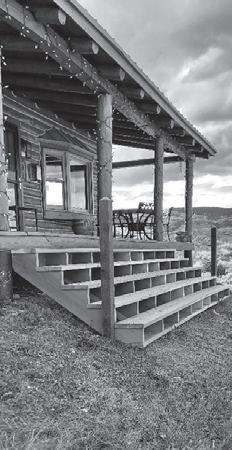
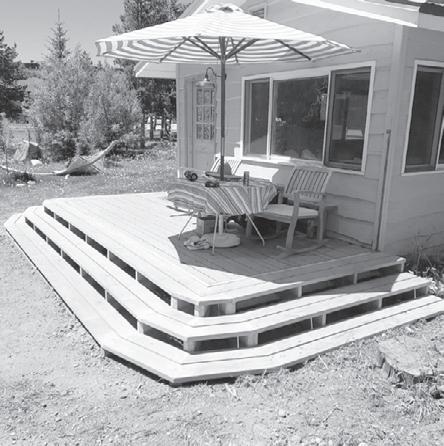













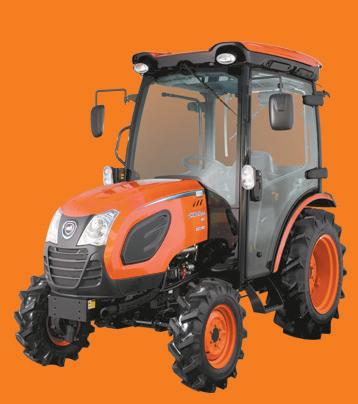
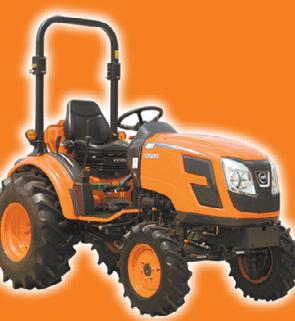
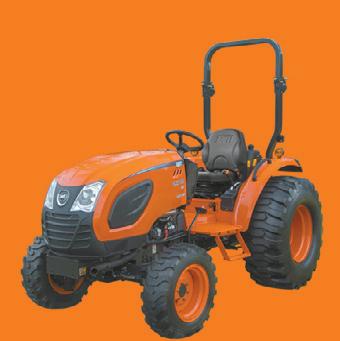
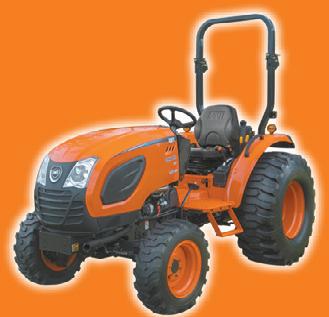


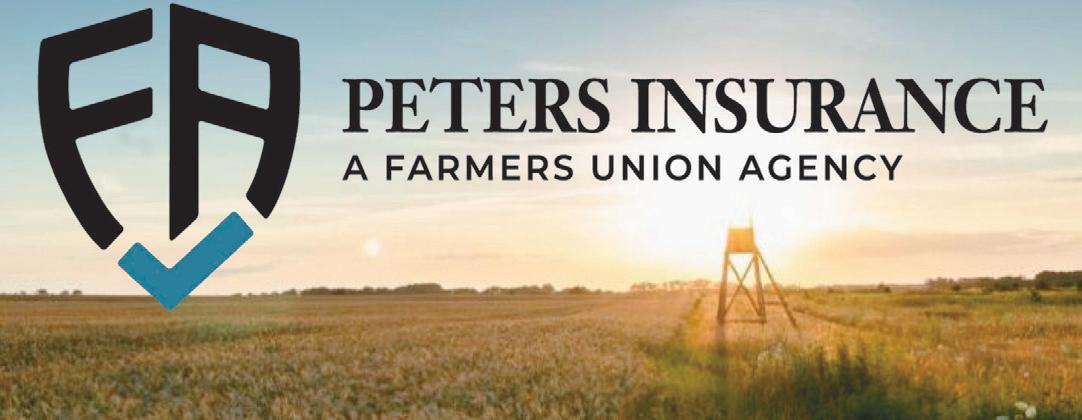

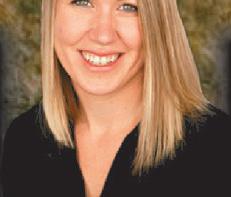





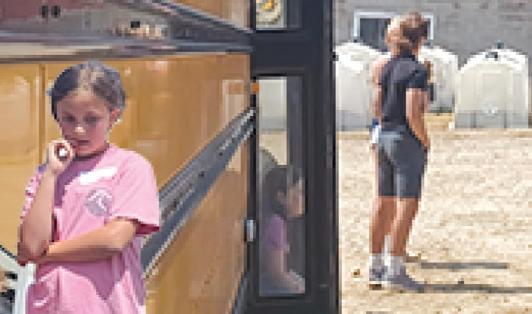
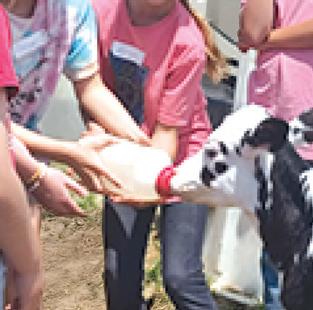
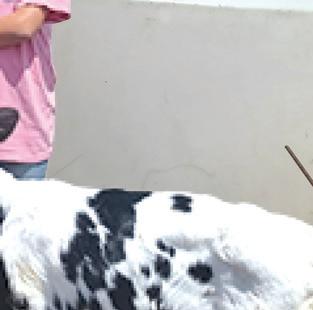

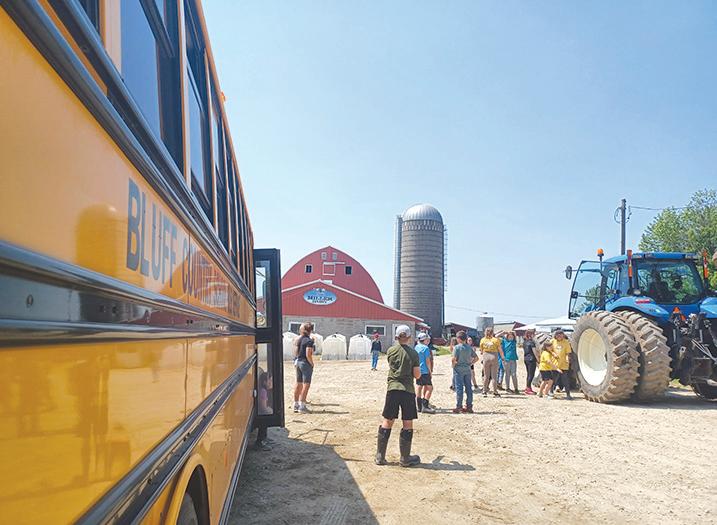









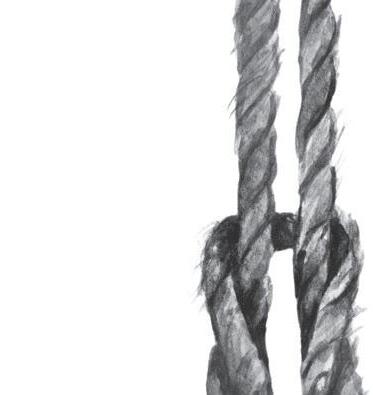



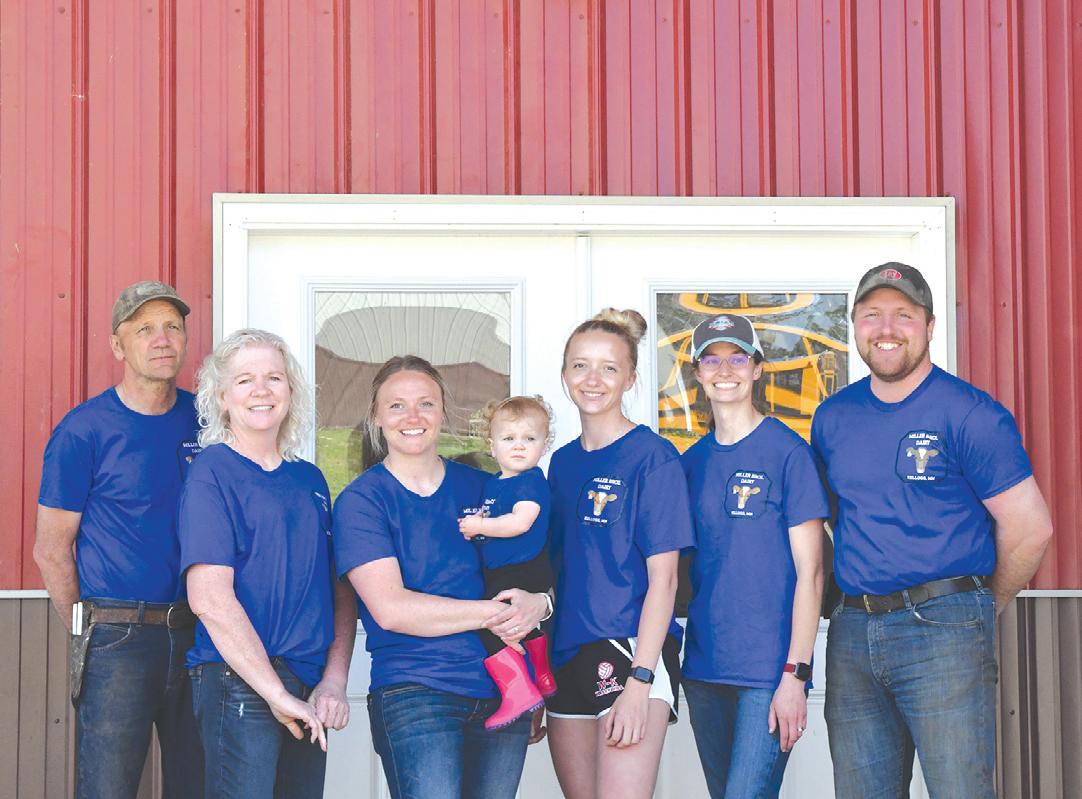



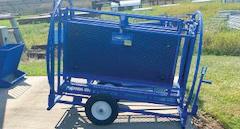

units and started milking in
The Millers were the students’ second stop of the day. In the morning, the students visited Jeremy Holst’s dairy farm near Lake City. Holst milks in a parlor, which gave the students an opportunity to see two different milking systems.
Tom shared about how far removed many students are from dairy farming.
“When we grew up, everybody grew up on a farm or their grandma and grandpa had a farm,” Tom said. “Most of these ones have never been on a farm.”
The kids were split up into four groups to explore four immersive stations around the farm.
The first station was a New Holland TG275 tractor. Each student had the opportunity to sit in the drivers’ seat of the tractor which was turned off.
The next area was visiting the calves. Students each had a chance to bottle feed a calf. The station was an immersive experience with kids petting calves and getting their hands licked.
Miller Broz. Dairy page 16



MONDAY
8:00 am Overnight market cows/bulls
10:00 am Fed cattle, followed by day-delivered market cows & bulls
1:00 pm Dairy cattle, stock cows & breeding bulls followed by feeder cattle
4:00 pm Baby calves, arena 2
TUESDAY
8:00 amSheep and goats
11:00 am Feeder pigs
WEDNESDAY
10:00 am Hog/Sow/Boar Auction
2:00 pm Fed cattle, followed by market cows and bulls
THURSDAY
10:00 am Special feeder cattle auctions, September - April
FRIDAY
Closed Office open 8:00 am – Noon



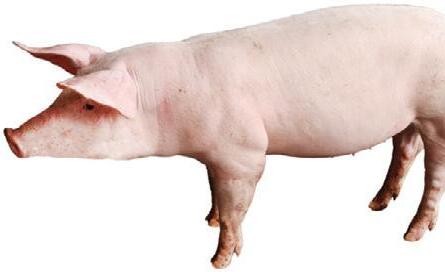

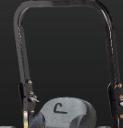

YARD HOURS
Sunday Noon – 10pm
Monday 6am – 10pm
Tuesday 6am – 10pm
Wednesday 6am – 4pm
(Open until 10pm, preceding special Thursday sales ONLY)
Thursday 6am – 4pm
Friday 6am – Noon
Saturday By Appointment

HAY AND BEDDING AUCTION
** ALL SELLERS MUST REGISTER IN THE OFFICE BEFORE UNLOADING ** ** ALL HAY AND BEDDING MUST BE REMOVED BY SUNDAY AT 5 PM
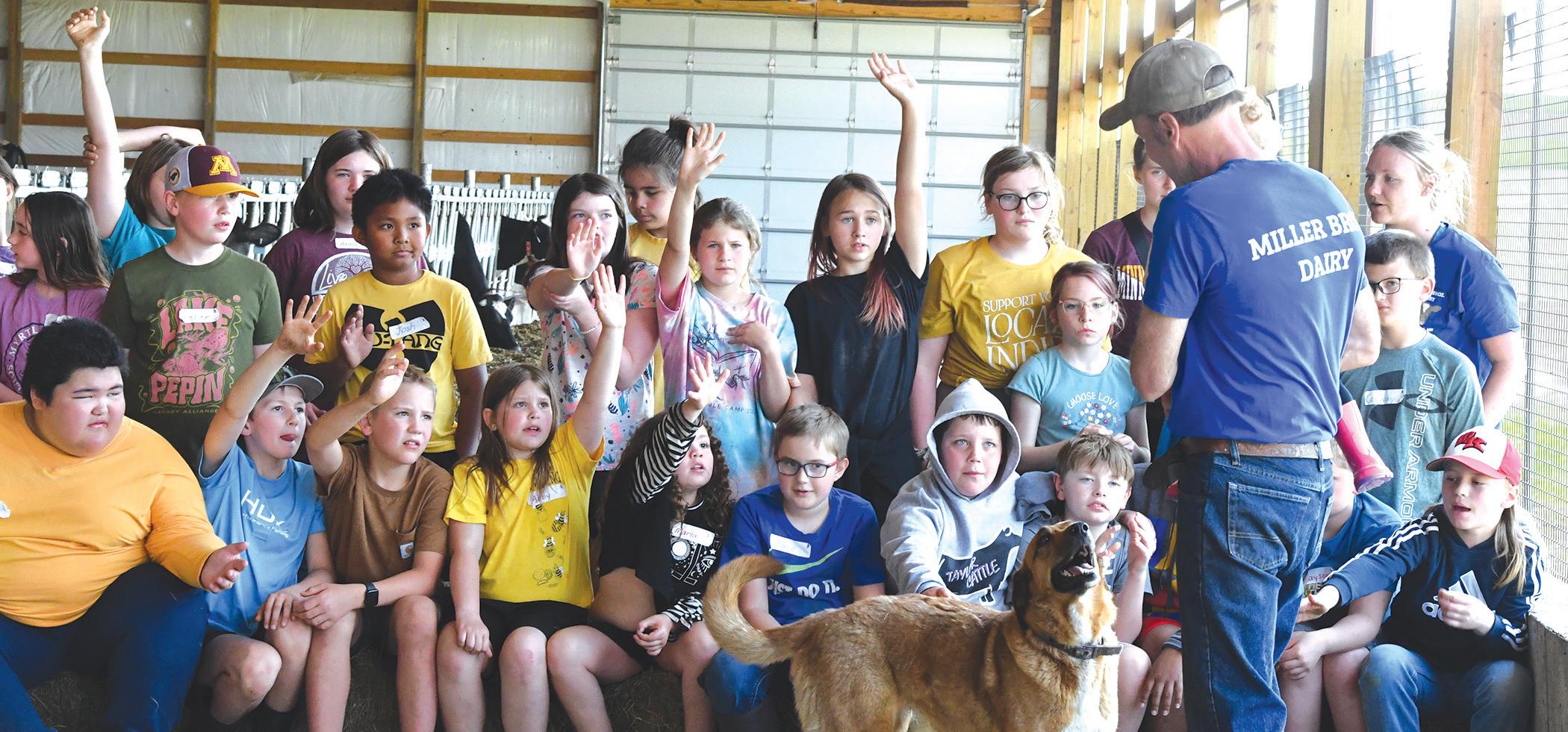
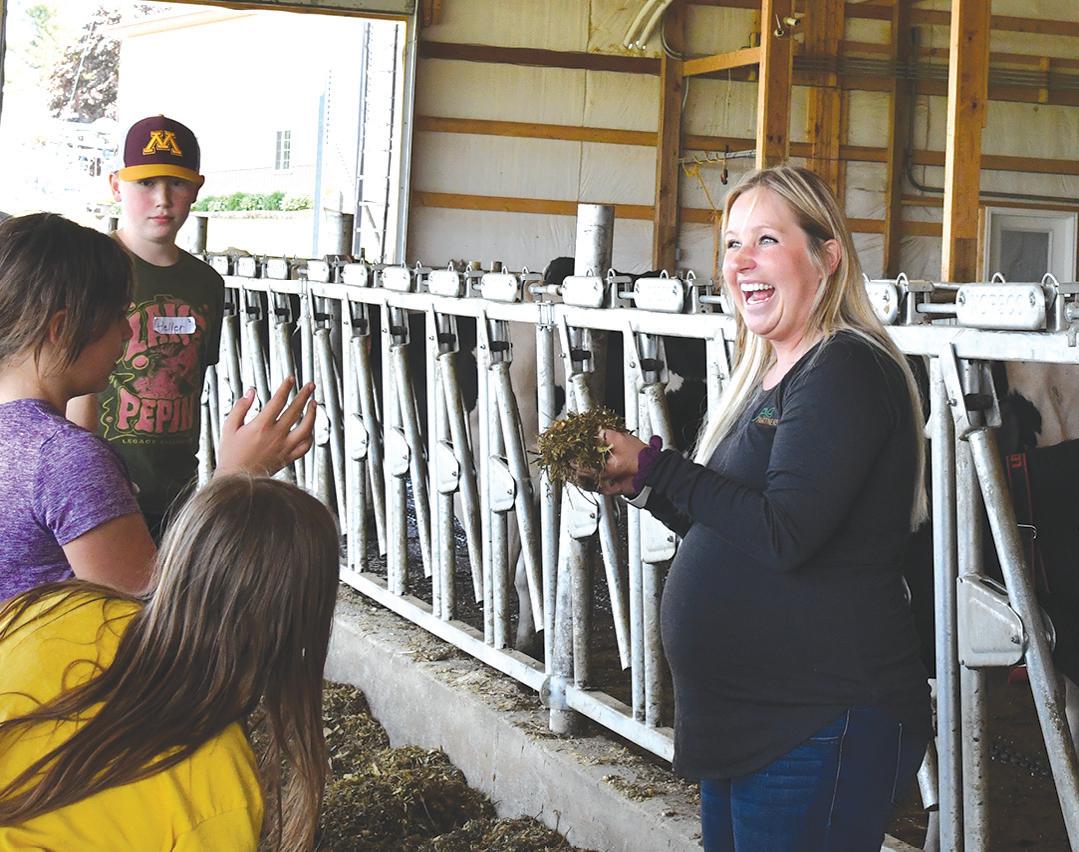
Wabasha-Kellogg School District fourth grade students listen to nutrition consultant Barloe Brisson Kanz share about total mixed ration May 14 at Miller Broz. Dairy near Kellogg. Learning about feed was one of the four stops the students made on their farm tour.




grade students
students and the rest of the fourth grade on the field trip.
Also near the calves was Al the cow. Al is the bovine mascot for the Millers and is even featured on their T-shirts. Bryton purchased her in 2016, and she is a favorite. The students had heard about her, and had the opportunity to see her as she was tethered for petting during the tour.
Down toward the barn, students listened to nutrition consultant, Barloe Brisson Kanz, as she showed them total mixed ration and other aspects of the cows’ feed. During extra time, some of the students worked to befriend the cows by trying to pet them or offering them feed.
ing units inside and a manure lagoon with nine months’ worth of storage. The decision to update came because their freestall barns were worn out and it was difficult to find help to milk in the parlor. The project was not an expansion. The barn has two sides, one for Tom and Kay’s cows and one for Bryton and Morgan’s.
“It’s not about getting bigger, it was just (about) maintaining it as a family dairy,” Kay said.
The project broke ground in June 2023, on the day Bryton and Morgan were married.










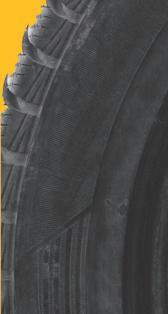





The fourth location was dairy focused. Students first went into the farm office to look at the farm data on the computer. Second, they went into the robot room to watch cows be milked, and finally, they each had the opportunity to climb up the outside of the milk bulk tank and look inside to see where the milk is stored before being taken off the farm to a processing facility.
Students finished up the day with a snack and glasses of milk before heading home.
“It was hard to leave here to go to my wedding, knowing that this project was starting,” Bryton said.
The Millers did all the cement work for the project themselves. This was the first time the Millers had done a cement project of this magnitude, Tom said. In all, they poured about 863 yards of cement. Thinking back, they recalled forming cement by the headlight of their utility terrain vehicle to get the project done.
The new facility has allowed the Millers to eliminate outside labor.
“We still work ... just as hard as we did before,” Tom said. “The times are more flexible (now) and we’re not as tied down.”
The Millers are content with the project Kay said.





The barn the students toured was built recently. The Millers’ first day milking cows in this barn was Jan. 2. The transition from their old milking set up to the new barn, which has robotic milking units. has been quick.




“Never in my wildest imagination did I think it was going to turn out this nice and be running like this at this point,” Tom said.
Bryton agreed.
“We thought it’d take like two to three years to get to where we’re at,” Bryton said.
The Millers’ update included a new freestall barn with the robotic milk-
A Wabasha-Kellogg School District fourth grade student lets a calf suck on her fingers May 14 at Miller Broz. Dairy near Kellogg. Students had an immersive experience on the dairy farm during the tour.
“(We are) 100% happy,” she said. “There’s challenges and there’s still a lot of work involved in it, but it is absolutely what’s the right thing for us.”
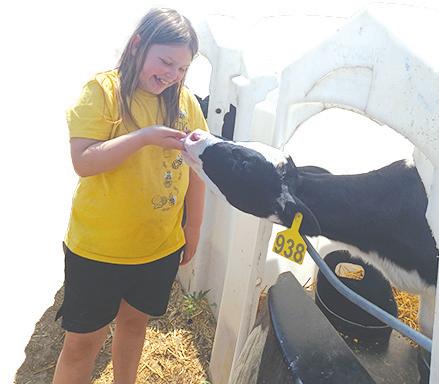
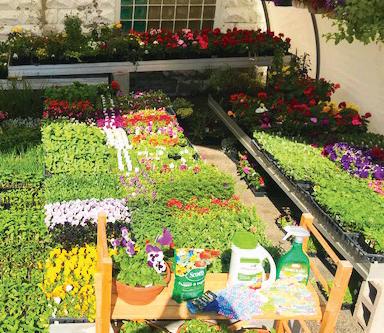

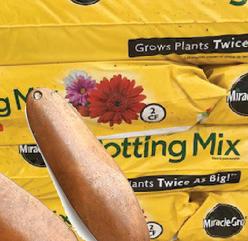










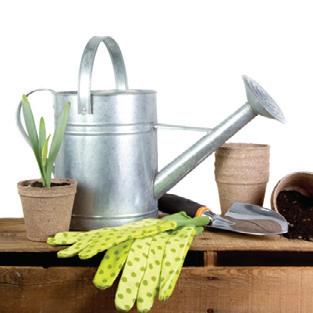


















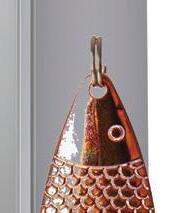




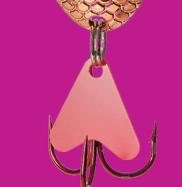




Thursday, July 25th (live & online) Leff Brothers Farm Retirement Auction; Day 2 includes tractors, farm machinery, skid loaders, trucks, trailers and vehicles. Bidding starts opening Thursday, July 25th at 9 am. Located near Riceville, IA (Hamilton) Friday, July 26th (live & online) Farm Retirement Auction for The Johnson Brothers; Meticulously maintained and like-new farm machinery for sale; tractors, combine, combine heads, grain trailers, grain cart, planter and other implements. Bidding starts opening Friday, July 26 at 10 am. Located near Owatonna (Maring)
Tuesday, July 30th (online only) Large 50+ Year Collection of Collector Tractors from Ken Wilder Estate and Mark (Blue) Wilder; collection of 175+vintage collector tractors, tractor parts, weights and accessories. Bidding starts opening Saturday, July 20th at 8 am and starts closing Tuesday, July 30th at 9 am (Maring)
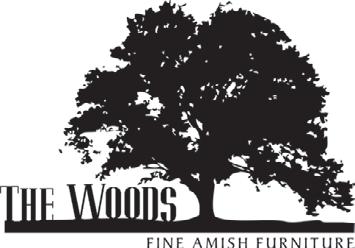

June 7th at 10 am and starts closing Tuesday, June 18th at 9 am (Hamilton)
Wednesday, June 19th (online only) Auction for Denny and Donna Beyer; Restored tractors, tractor parts, vehicles, power and hand tools, antique toy tractors and more; Bidding starts opening Monday, June 10th at 8 am and starts closing Wednesday, June 19 at 4 pm (Maring)
Thursday, June 27th (online only) Ber-Mark Excavating Retirement Auction; Exceptional line of late mode, clean, well maintained construction equipment including dump trucks, excavators, loaders and dozers. Bidding starts opening Monday, June 17th at 10 am and starts closing Thursday, June 27th at 9 am (Hamilton)
Sunday, June 30 (online only) M2 Auto Parts Inventory Reduction Auction; Vintage and Antique Vehicles and Parts; Approximately 300-400 cars; Bidding starts opening Wednesday, June 19th at 10 am and starts closing Sunday, June 30th at 6 pm (Hamilton)
Wednesday, July 17th (online only) Antique and Collector Tractor Auction for Paul and Bonnie Bauer; Restored tractors all parade ready and moldboard plows to match tractors; Bidding starts opening Saturday, July 6th at 8 am and starts closing Wednesday, July 17th at 10 am (Maring)
Friday, July 19th (live & online) Retirement/Moving Auction for Geno and Sue Peterson; Selling tractors, balers, skid loader and attachments, lawn and garden equipment, power and hand tools, firearms and household items. Bidding starts opening Friday, July 19th at 10 am. Located near Nerstrand (Maring)
Monday, July 22nd (online only) Estate Auction for the John Kingsbury Estate; Seling trailer, skid loader, skid loader attachments, saws, power and hand tools and lawn and garden equipment. Bidding starts opening Saturday, July 13th at 8 am and starts closing Monday, July 22nd at 10 am (Maring)
Wednesday, July 24th (online only) Leff Brothers Farm Retirement Auction; Shop related items including power tools, hand tools, air compressors, welders and misc shop equipment. Bidding starts opening Thursday, July 18th at 10 am and starts closing, Wednesday, July 24th at 9 am (Hamilton)
Thursday, August 1st (online only) Pre-Harvest Area Farmers Consignment Auction; Advertising deadline Friday, July 5th; bidding starts opening Tuesday, July 23rd at 10 am and starts closing Thursday, August 1st at 10 am (Hamilton)
Friday, August 2nd (live and online) Retirement Auction for Jeff and Karen Davidson; Tractors, combine, grain trailers, planter, tillage equipment and farm support equipment. Bidding starts Friday, August 2nd at 10 am. Located near Kenyon (Maring)
Saturday, August 10th (live and online) Pre-Harvest Area Farmers Consignment Auction; Advertising deadline Tuesday, July 9th; Accepting consignments July 30th - August 7th (Not accepting consignments on Sundays) Bidding starts opening Saturday, August 10th at 8:30 am (Maring)
Saturday, August 17th (live & online) Clean Farm Retirement Auction for Gerald and Karen Puppe; Tractors, haying equipment, wagons, trailers, cultivators, livestock equipment and other farm support equipment. Bidding starts opening Saturday, August 17th at 9:30 am; Located near Goodhue (Maring)
Sunday, September 1st (online only) Annual Labor Day Auction; Hobby and antique farm equipment, attachments, shop tools, farm items, lumber and more. Advertising deadline Friday, August 2nd; Bidding starts opening Friday, August 23rd at 10 am and starts closing Sunday, September 1st at 9 am (Hamilton)
Monday, September 2nd (live & online) Annual Labor Day Auction; Farm machinery, construction equipment, semis, trucks, trailers, vehicles and more. Advertising deadline Friday, August 2nd. Online bidding starts opening Friday, August 23rd 10 am and Live Auction starts Monday, September 2nd at 9 am (Hamilton)




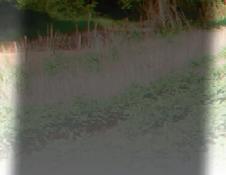

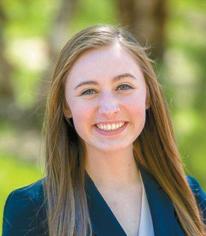

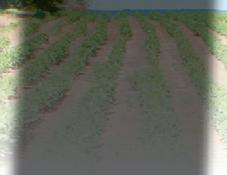

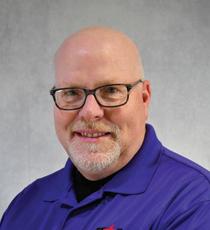
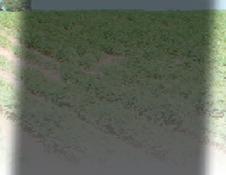


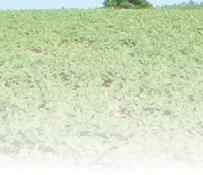





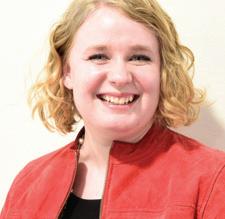



































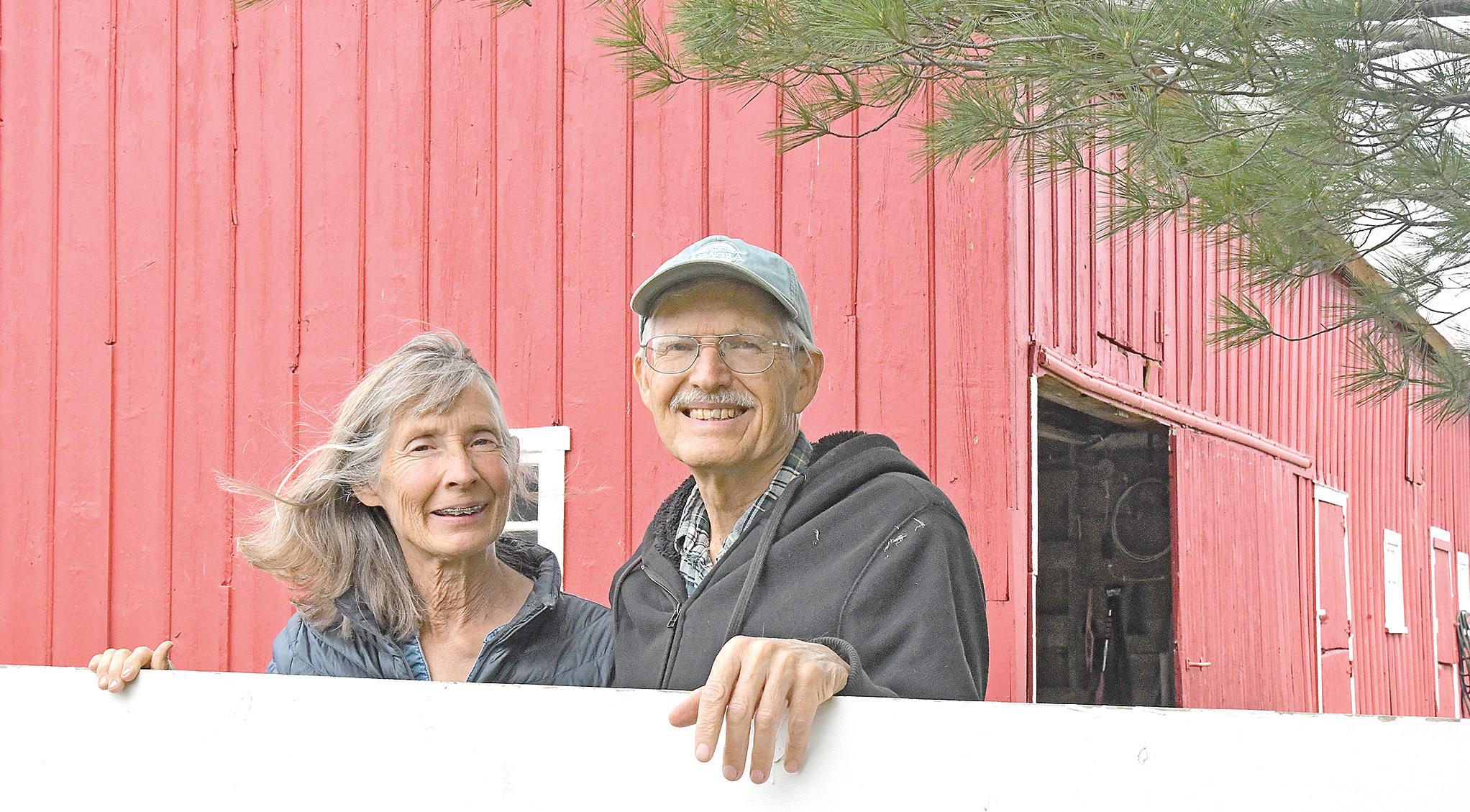









































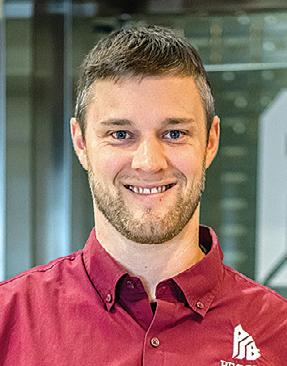

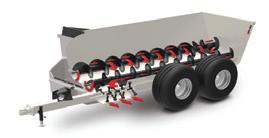
















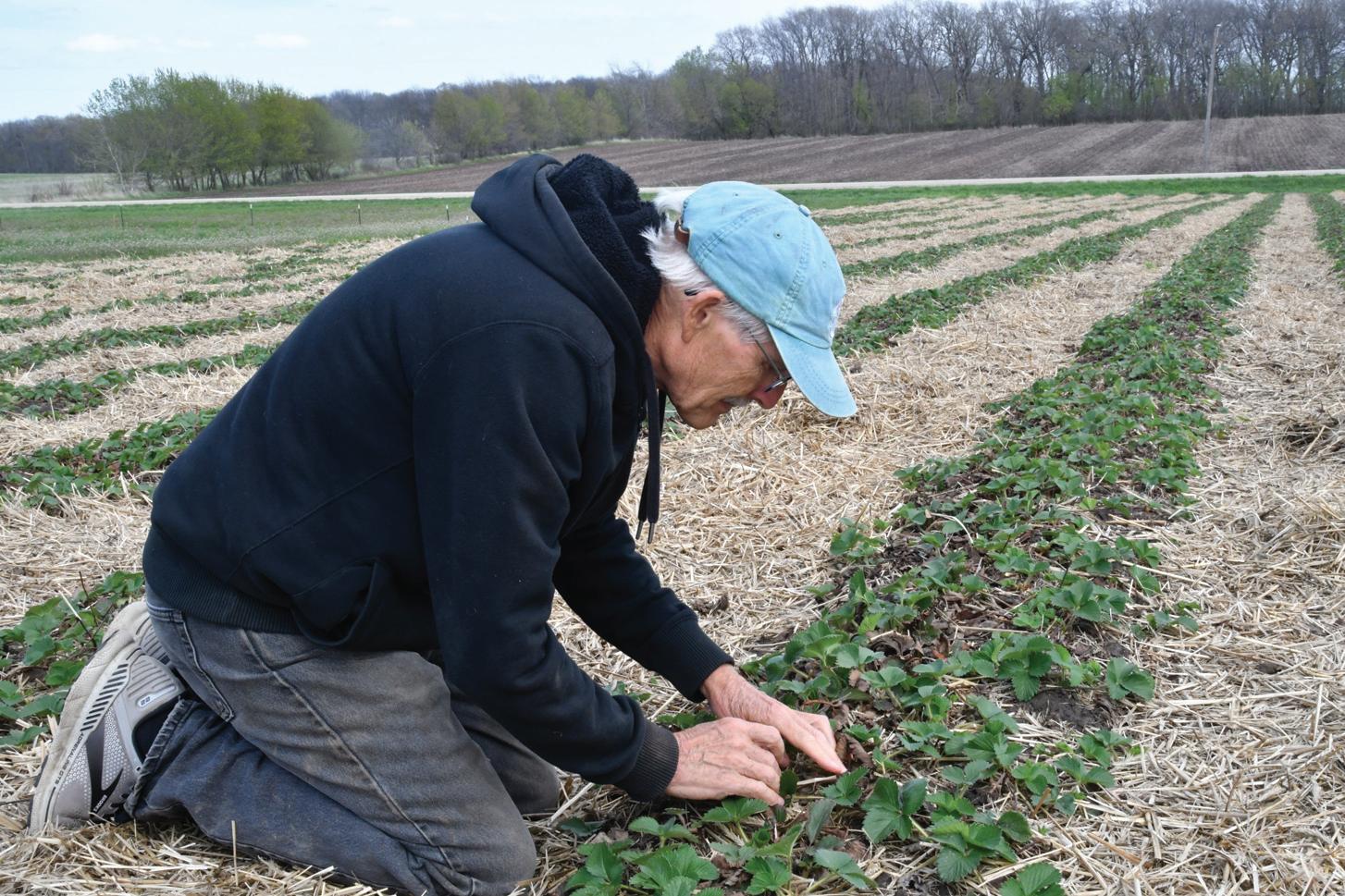






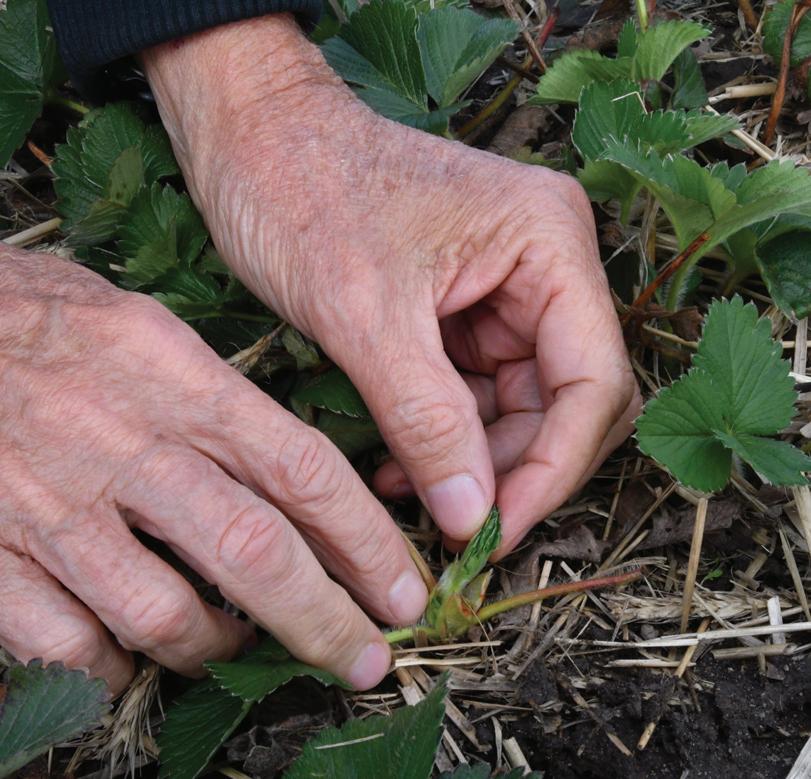

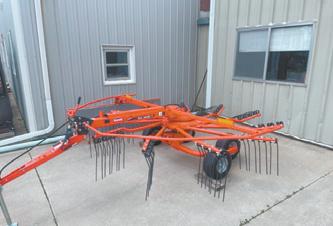


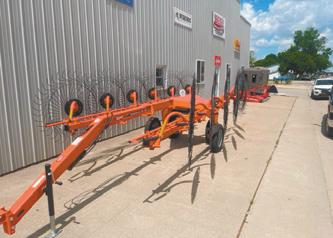



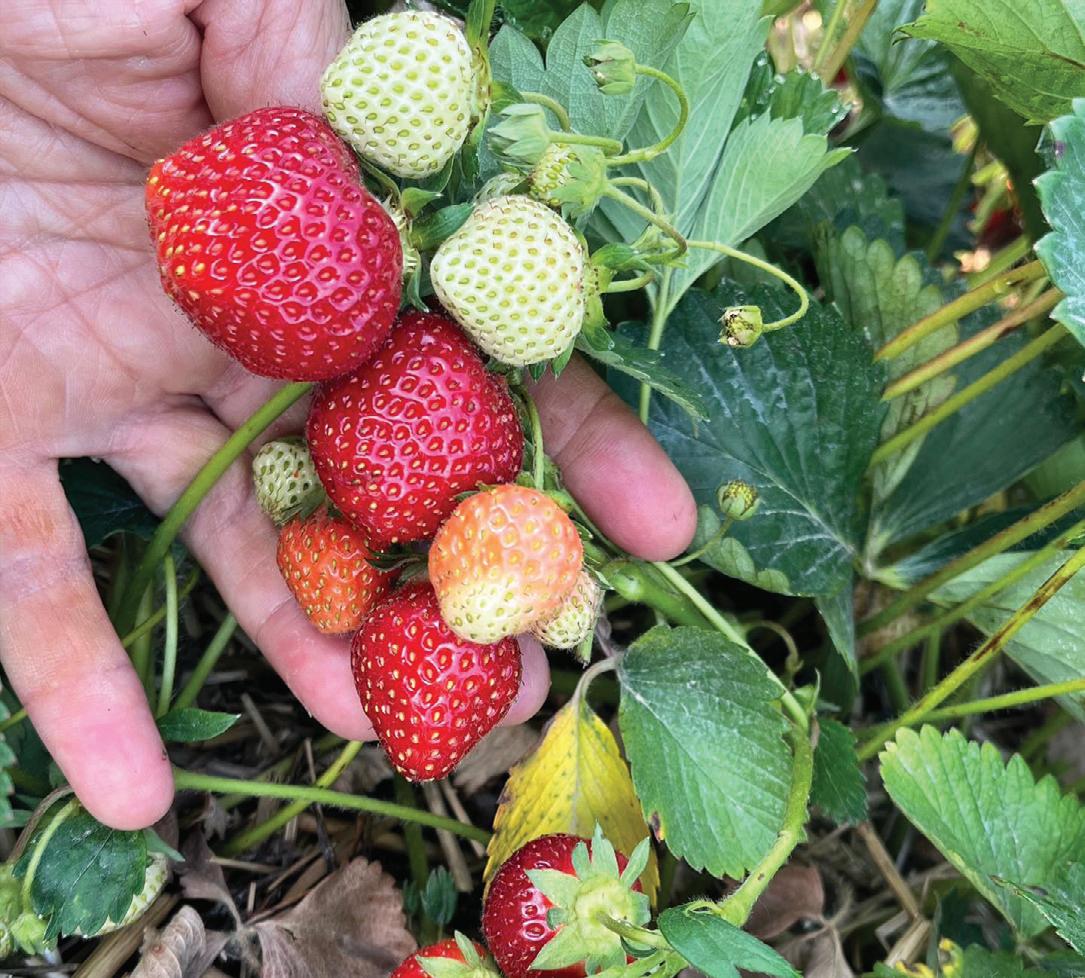






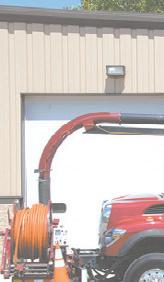



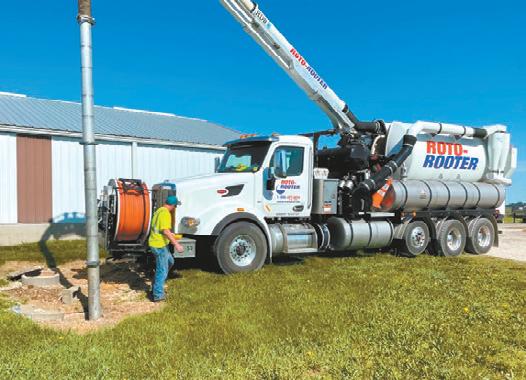





















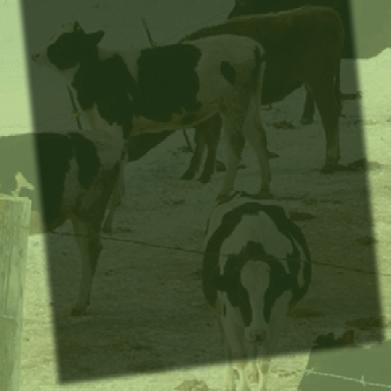

















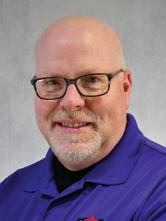
The name of their farm has significance to the Mosiers. The Mosiers have lived on their farm since 1984, except for 11 years from 2000-2011, which they spent as missionaries in Africa.
On April 15, 2008, the Mosiers and two of their children were on an airplane which crashed at take-off, landing in an open-air market. The crash killed 47 people, the majority of whom were in the market. All four of the Mosiers survived.
“It’s a miracle we’re alive,” Mosier said.
“When it happened, we said we’re never going to miss an oppor-
tunity to praise the Lord for sparing our lives. So, we said this will be a good way to do that.”
The Mosiers view their business through the eyes of their faith.
“It’s really the Lord’s business,” Mosier said. “(We say) ‘Lord, it’s your field, and if you want to have a full crop or if you want to give me the year off that’s up to you. ... When (people) thank us, we can say, ‘Well, you can thank the Lord, He does most of the work.’”
The Mosiers donate 20% of their profits from the farm to mission work in Africa.
And, while they credit the Lord for their success, they put in a lot of hard work.
Each spring, the Mosiers rake the

straw off their plants early and plant their strawberries in late April.
Their harvest season is June. They are open six days a week in the
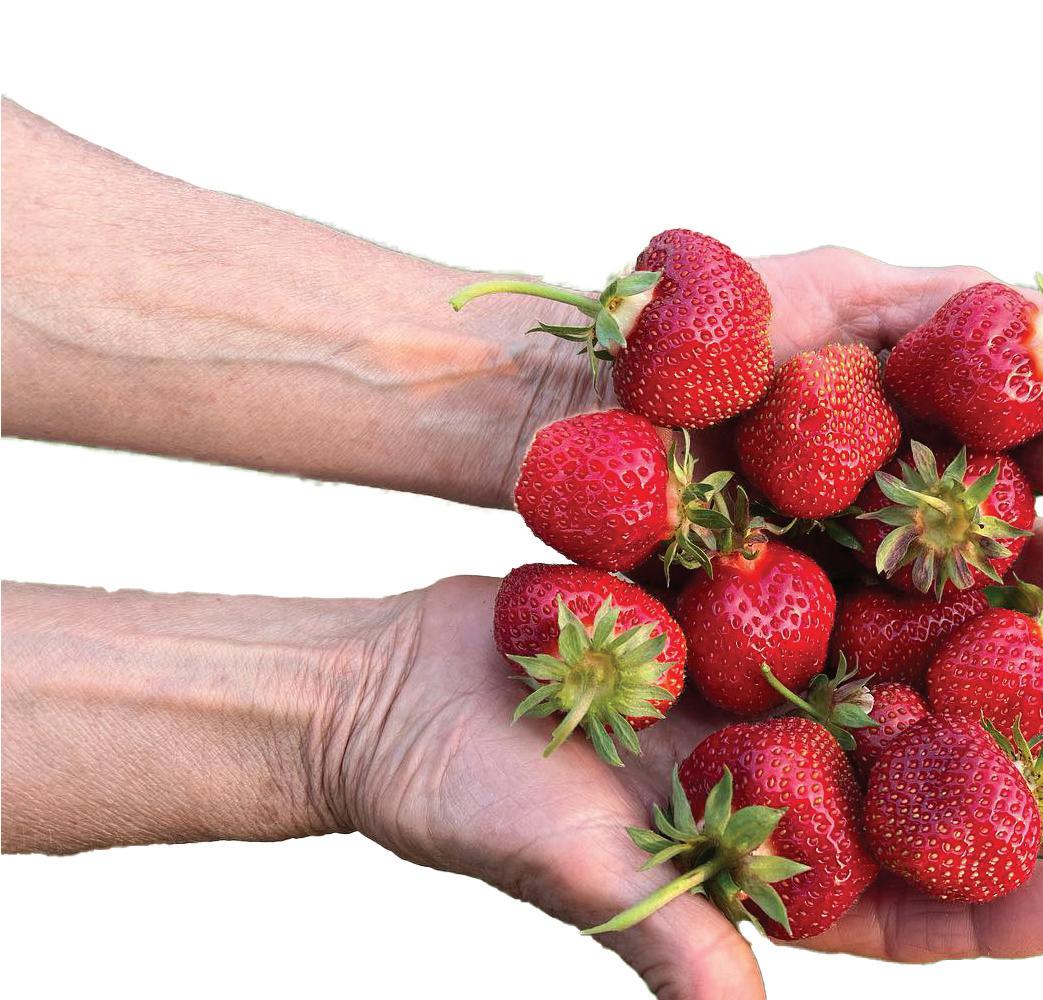

An asparagus shoot reaches upward out of the soil April 30 at Miracle Strawberry Farm near Dodge Center. The Mosiers’ asparagus is sold on farm.
mornings for three weeks. The Mosiers are assisted as needed by their adult children and their grandchildren. During the busy season, they also have some employees.
During the season, they can have as many as 600 customers in a day. The maximum number of customers in one day they have had was about 750.
They have three types of strawberries planted: an experimental variety, Jewel and Wendy.
The Mosiers irrigate, with help from their planter which lays down irrigation drip tape 5 inches below the surface.
“That was a real game changer,” Mosier said. “This last year, we had a great crop, but we wouldn’t have had a crop without water. ... We just wouldn’t have been able to offer much for our customers. So, it gives us more consistency.”
The Mosiers are not organic, but they limit the amount
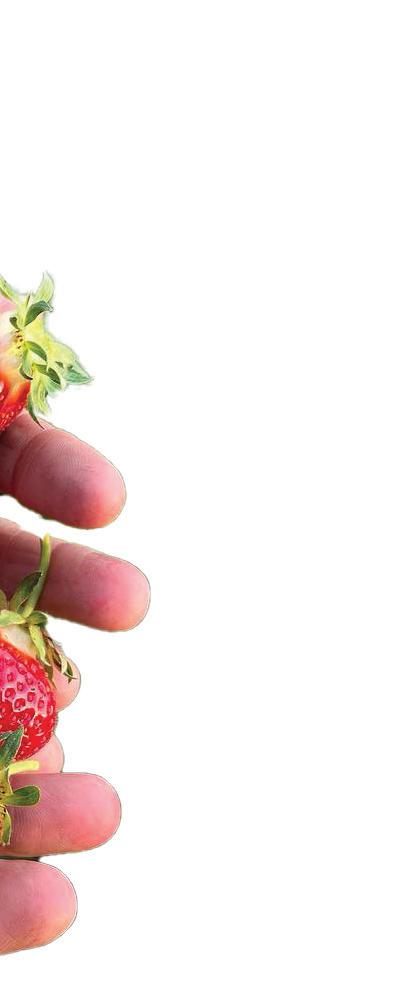
of spray used. They spray once for insects and once for fungus, but do not spray the plants once the fruit appears.
“We’re trying to treat our customers the way we would want to be treated, in trying to provide as safe a food to eat as we can give them and still have a crop,” Mosier said.
Once harvest is completed, the Mosiers mow their strawberries off and fertilize. In the fall, they spread hundreds of small squares of straw over the fields to protect the strawberries. Last year, they used 950 bales.
Mosier said they plan to continue their business for a long time. Three acres of strawberries is a good fit for their operation.
“We don’t have aspirations to see how big we can get,” Mosier said. “We just are happy with the customers that we have.”
























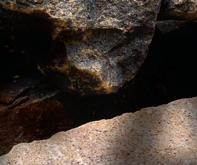


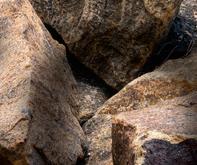
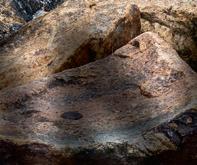










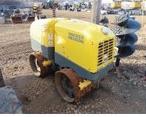

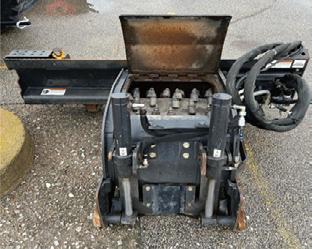
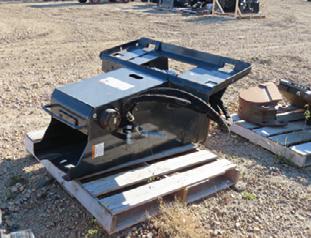
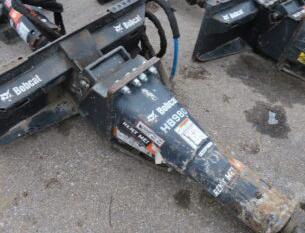


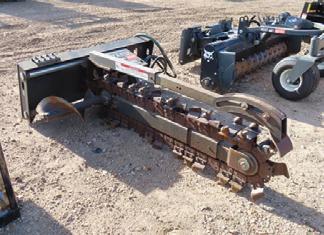









After years of searching for the perfect home that fits their needs or would be excited to renovate, John and Nancy decided to build! Around that same time, they attended the Eagle Bluff Environmental Learning Center’s presentation about the Passive House movement – an exceptionally rigorous building standard that results in a home which, using the latest technologies, has the smallest carbon footprint currently possible.
The concept hit home. John says he doesn’t consider himself an “environmentalist” per se; he just believes in living within his means.


“We believe in energy conservation. We believe in protecting our valuable non-renewable resources. But we’re also big believers in electricity and living the lifestyle we’ve come to know within reason, but just to do it more efficiently and more economically.”
To see more testimonials visit us at www.solarconnectioninc.com
































